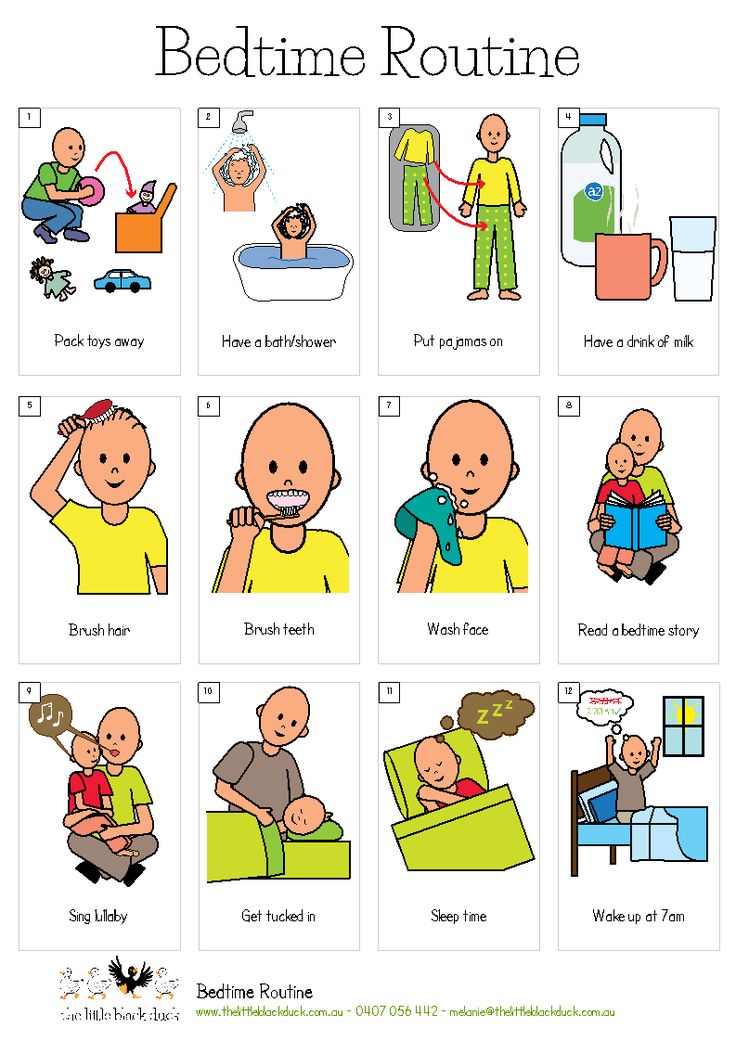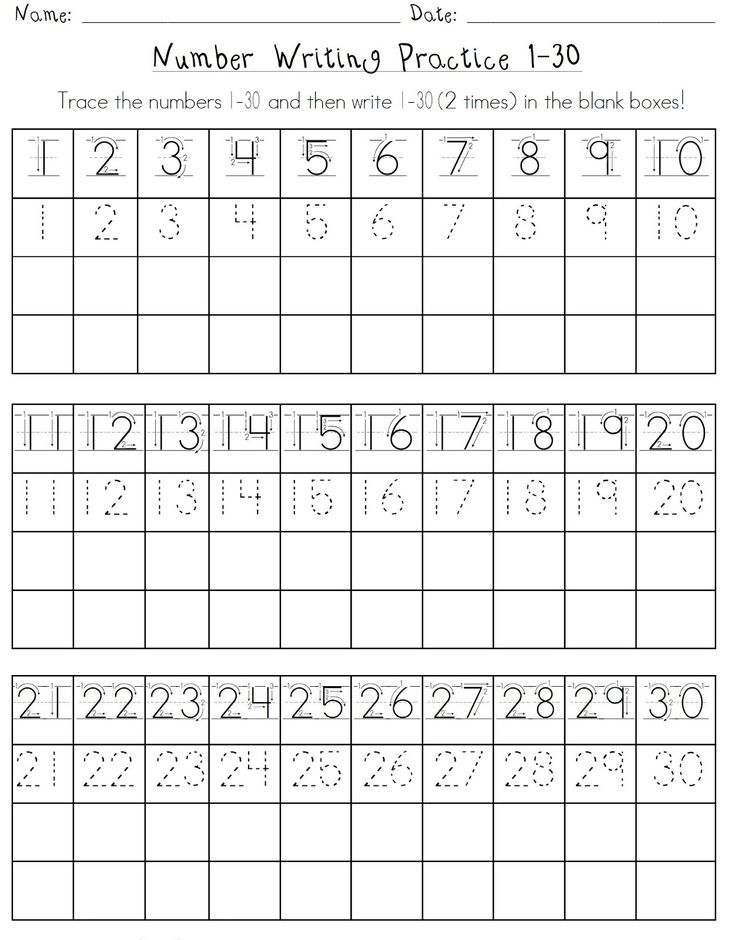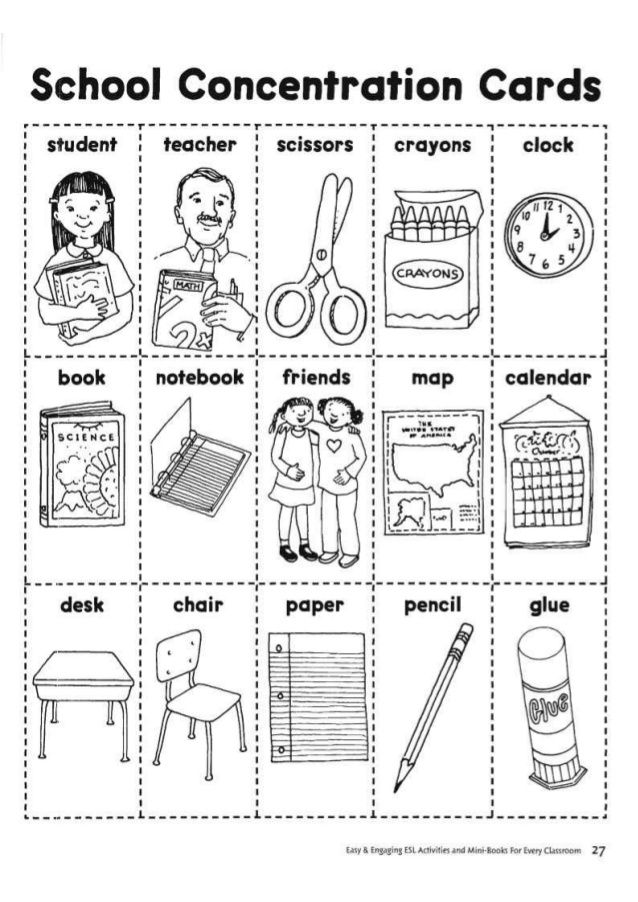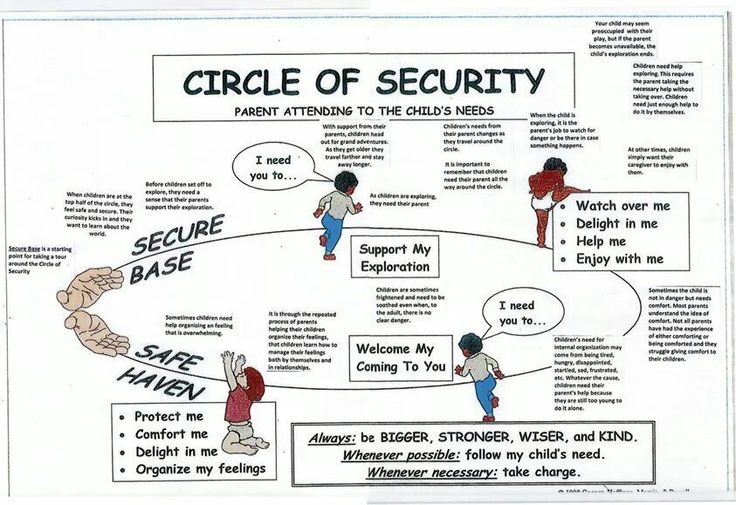Bedtime routine ideas
23 Tips for Your Ideal Nighttime Routine
Trouble sleeping? You’re not alone. About 1 in 3 adults in the United States get less sleep than they should.
In the midst of the pandemic, you might have more time for sleep, but sleep quality might still take a hit, thanks to added anxiety and stress from loneliness, health worries, financial concerns, and other issues.
Nighttime routines also commonly factor into sleep quality, regardless of anything else happening in the world. Your activities during the evening hours can have a big impact on your ability to fall asleep and stay asleep each night.
Poor sleep can have plenty of health consequences, many of which you might worry about while lying awake. If you have trouble getting enough restful sleep on a regular basis, try exploring your pre-bedtime habits to identify potential problem areas and create a new routine that promotes better sleep.
Here are some tips to get you started.
A bedtime routine that includes a few steps toward preparing for the next day can have several advantages.
First, getting a head start on tomorrow’s to-do list gives you one (or two or three) fewer things to stress over as you try to fall asleep.
Having less to do in the morning can help you feel less rushed, making it easier to set aside a few minutes for morning meditation or a mindful breakfast that’ll start your day off right.
Take care of morning chores
If you struggle to get started in the morning, ask yourself what usually holds you up.
Maybe you spend a lot of time deciding on an outfit or never know where to find your keys. Perhaps you need a hearty breakfast to begin your morning but have to clear the sink of last night’s dishes first.
Setting aside 15 to 30 minutes every evening to prepare for the next day can help prevent hectic mornings and promote peace of mind as you get into bed.
To reduce bedtime stress and feel more relaxed in the morning, try taking care of these chores in the evening:
- Make your lunch for work or school.

- Gather your essentials — think keys, wallet, sunglasses — in one spot.
- Wash the dishes.
- Set out your clothes for tomorrow.
Make a to-do list
There’s only so much you can do in preparation for tomorrow. But for everything else, there’s a list.
Spending just 5 minutes writing a to-do list each night can help you avoid the sleep-disrupting habit of thinking about everything you need to do as you’re trying to fall asleep.
A paper to-do list can free you from the urge to constantly run through a mental version. It can also help you feel more in control of tomorrow before it even begins.
Try journaling to relieve stress
A journal provides a space to express any concerns weighing on your mind, reducing the need to unpack them mentally in bed.
While journaling may not be enough to relieve severe anxiety or chronic stress, it can help reduce anxious thoughts. Physically writing about things stressing you out can help you visualize them leaving your mind and reinforce your sense of relief.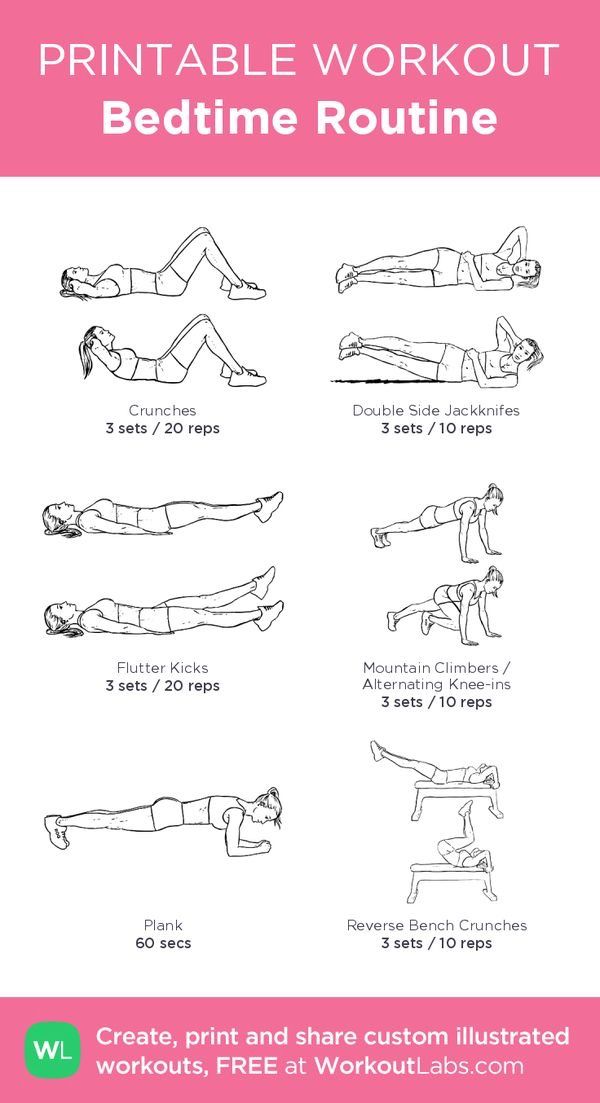
Writing about stress-provoking upcoming events (and noting a potential solution or two) may also help you feel more prepared to face them, which can ease anxiety.
You don’t have to wait until it’s lights-out to start winding down. Filling your evening hours with calming activities helps you avoid overstimulating your mind and body as the day draws to a close.
Cut off caffeine early
A regular post-lunch cold brew might help you make it through the day, but this caffeine boost can have consequences later.
Having caffeine even 6 hours before bedtime can disrupt your rest. If you often have trouble sleeping, try sticking to beverages without caffeine after lunch.
Avoid strenuous exercise
Yes, regular exercise can improve sleep, but you’re better off saving intense workouts for morning or afternoon.
Vigorous exercise shortly before bedtime raises your body temperature and heart rate, making it harder to fall asleep and potentially reducing the amount of sleep you get.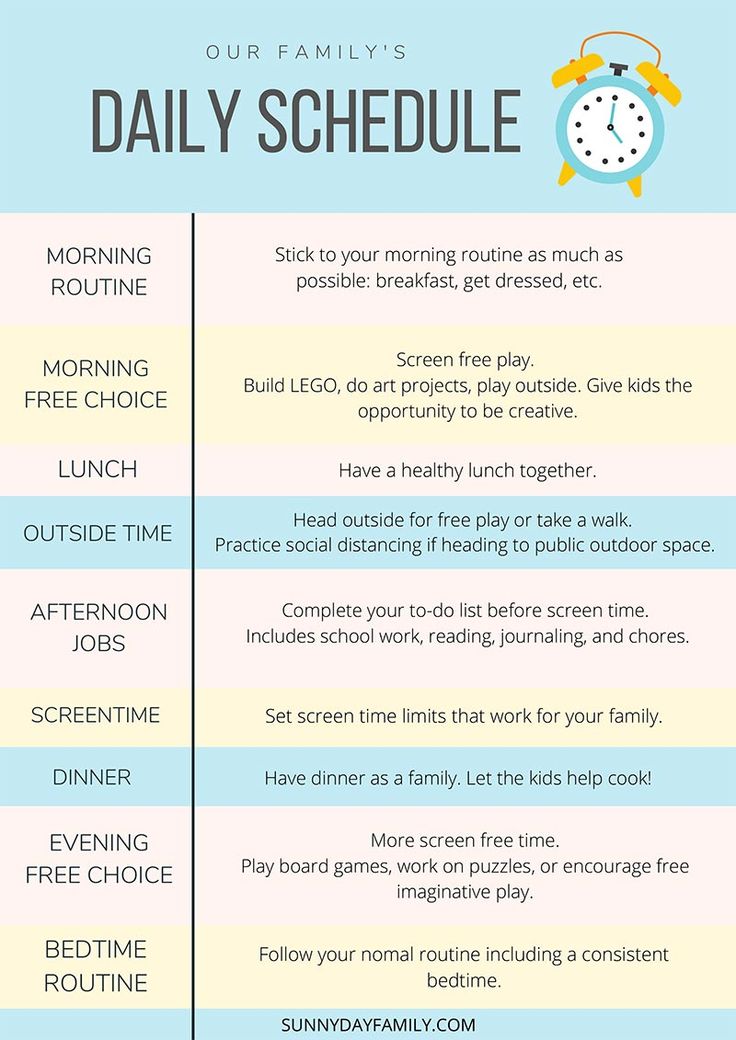
It’s perfectly fine to do light or moderate intensity exercise in the evening, though.
Instead of a run or heavy weightlifting session, try:
- stretching
- walking
- yoga
Just keep in mind that even with light exercise, it’s still best to wrap up an hour to 90 minutes before bedtime.
Meditate
A regular meditation practice can help you relax physically and mentally. Mindfulness meditation, in particular, may help improve your ability to release the day’s stress and tension in preparation for a good night’s sleep.
Focusing your awareness and sitting mindfully with your thoughts gives your body a chance to rest and relax. All those slow, deep breaths you’re taking? They cue your body to slow down at the same time.
Meditation can also help reduce behaviors that keep you up, like cycling through anxious thoughts.
Can’t meditate in the evening? Try these tips to make it a habit any time of day.
Put on some calming music
Playing soft, soothing music as you prepare for bed can trigger the release of hormones that help improve your mood.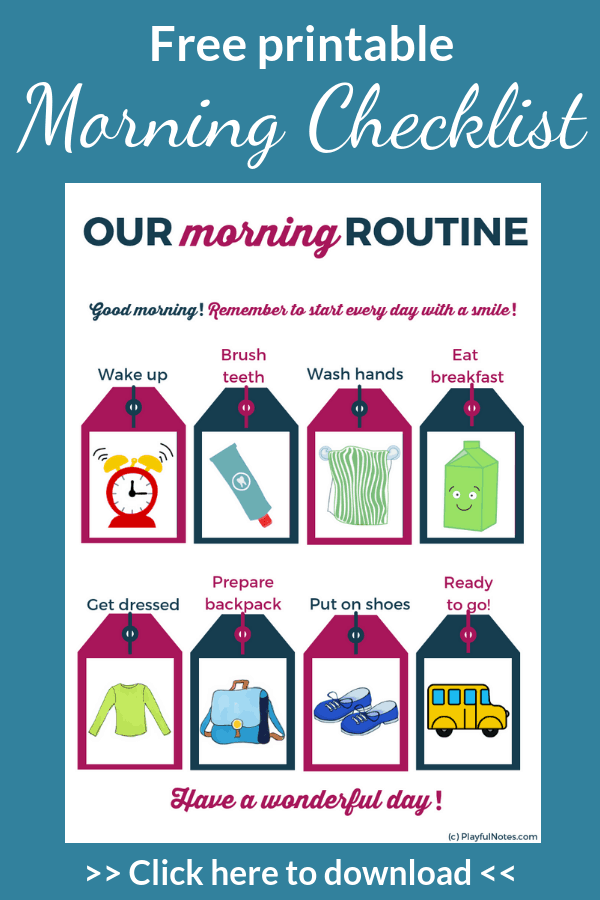 Feeling emotionally at peace can help your body feel calmer, too.
Feeling emotionally at peace can help your body feel calmer, too.
While music may help you fall asleep faster and get better sleep, make sure you stick with calming tunes. Energizing, upbeat music probably won’t have quite the effect you’re hoping for. For best results, try slow music without lyrics.
Change up your hobbies
Catching up on a favorite show at the end of a long day can feel relaxing, but try to avoid doing this within an hour or so of bedtime.
The blue light produced by electronic devices can confuse your brain, which links this light to daytime. If your brain thinks it’s time for you to be awake, it won’t tell your body to produce melatonin, a hormone that helps prepare you for sleep.
Using devices to scroll through social media, play games, watch videos, or chat with friends can also keep your brain active when you need it to start calming down.
Consider adding these activities to your nighttime routine instead:
- assembling jigsaw puzzles
- building models
- reading (but stick to paper books or an e-reader that gives off minimal light)
- drawing or coloring
- doing word or number puzzles
Create a family bedtime ritual
Connecting with loved ones — whether that’s your partner, children, or (good) roommates — can increase feelings of love, trust, and happiness.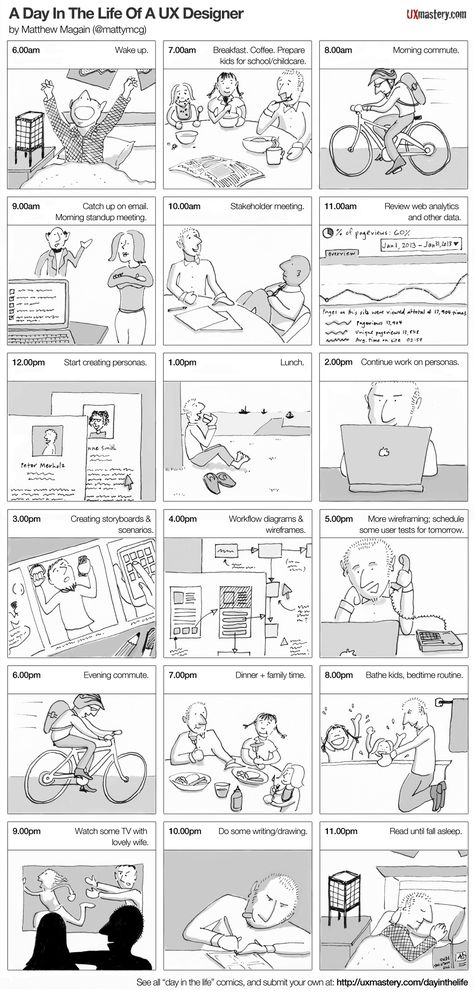
Generating these positive emotions just before bed can put you in a better mood, helping you feel more at ease when it’s time for bed.
Regardless of any other benefits, spending quality time with people you love can strengthen your bond and help lower stress.
Try:
- reading aloud to each other
- trading massages with your partner
- sharing highlights from your day
- cuddling or playing with pets
Make time for sex
Experts continue to explore the connection between sleep and sex, but evidence does suggest a potential link between sex before bed and improved sleep.
In one 2017 research survey, over 60 percent of the 282 adults who replied to the survey said their sleep improved after having an orgasm with a partner.
Oxytocin release during sex may be one explanation. The release of this “love hormone” can promote relaxation and a sense of well-being. Kissing and cuddling can also trigger oxytocin release, so any type of intimate contact before bed has benefit.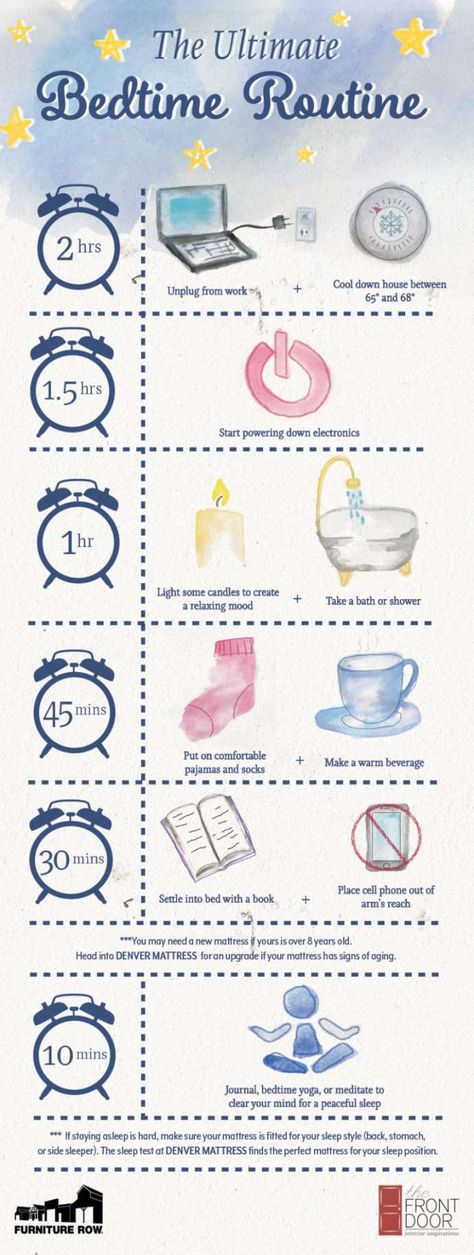
You don’t need a partner to add sex to your nighttime routine. Solo orgasms are a perfectly natural way to relax and get off to sleep more easily.
Make hygiene a ritual
It’s pretty normal for basic bedtime hygiene to happen on autopilot. But performing cleansing routines with more mindfulness than absentmindedness can help your brain and body tune in to your approaching bedtime.
Washing your face and showering can feel like boring chores you’d rather skip, but it’s possible to make these mundane tasks more pleasant and relaxing.
Build a ritural
- Instead of a quickly scrubbing your face, practice the 60-second rule. Gently wash your face for a full minute. Imagine washing away the stress of the long day as you cleanse your skin, or use a mantra or focused breathing to slow down.
- Take a hot bath. Research suggests that an hour or two before bed is ideal for a nighttime bath. If you’re sensitive to bubble bath or bath salts, create a relaxing atmosphere with scented candles.
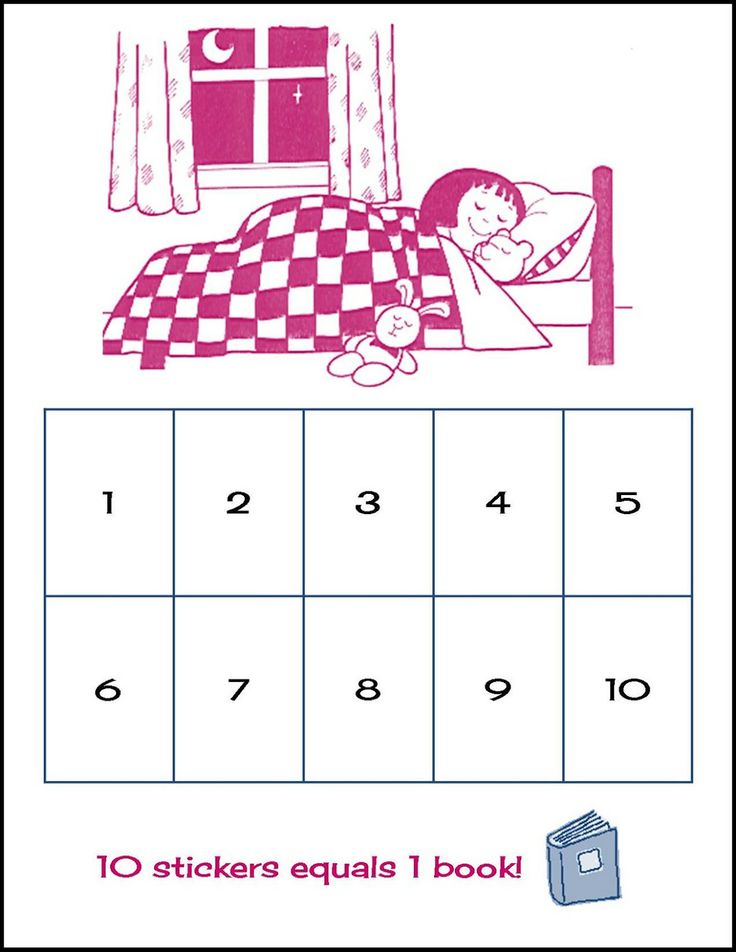
- Avoid bright lights. That bright overhead lighting in your bathroom? Not a great vibe for getting sleepy. Consider bringing some candles into the bathroom and doing your nightly routine with the lights off. For an added benefit, choose one with a calming scent, like lavender.
Don’t forget your teeth
Every nighttime routine should include 2 minutes for toothbrushing. Practicing mindfulness during this essential ritual can make it even more beneficial.
Set a timer for 2 minutes, then focus on your motions as you brush. Notice the sensation of the bristles on your teeth and the taste of the toothpaste.
Remind yourself of everything your teeth do for you. You might even try a mantra, such as “I’m grateful for my teeth.”
It’s also never a bad idea to revisit the basics of proper brushing.
Instead of simply switching off the lights at bedtime, try preparing your environment for sleep earlier in the evening. This gives your body time to adjust to the idea of sleep.
Dim the lights
Like electronics and the sun, electric lighting also produces blue light. Avoiding bright lights in the evening can help signal to your body that it should start preparing for sleep.
- Switch off bright overhead lights and turn on dimmer table lamps an hour or two before bed.
- Consider replacing lamp bulbs with ones that produce amber light.
Try aromatherapy
Calming fragrances, like lavender and cedarwood, can promote restful sleep.
To benefit from aromatherapy:
- Scent your bath with a few drops of essential oil.
- Place a diffuser containing essential oil in your bedroom.
- Use a few drops of essential oil on your pillow before bed.
Check your bedding
Clean sheets and fluffed pillows can make bed seem more inviting, and a comfortable bed can help you get better sleep.
Use season-appropriate sheets and blankets. Flannel sheets in the summer can make you too warm, and you might wake up sweaty and itchy.
For year-round bedding, go for easily removable, light layers so you can make quick adjustments if you feel or cold during the night.
Shop our expert-verified products for achieving deeper sleep.
Update your pajamas
Changing into sleepwear can help your body feel more ready for bed, but choose your pajamas with care. How they feel on your body is more important than how they look.
Comfortable pajamas can make bedtime something to look forward to, while tight or uncomfortable sleepwear can keep you fidgeting under the covers.
Switch on a fan
A fan can play two important roles in your bedtime routine.
First, it cools off your bedroom. Keeping your room on the cooler side can help you stay comfortable despite normal body temperature changes that happen during sleep.
Fans also produce white noise, which can block out noises that might keep you up. Hearing that low hum can help increase your confidence that you’ll sleep well, even if your roommate ends up arguing with their partner in the middle of the night.
Now that you’ve wound down and hopped into bed, how to drift off to sleep?
Think peaceful thoughts
Fixating on worrisome thoughts can keep you awake and stressed. Instead, try focusing on positive things that happened that day or events you’re looking forward to.
Some people also find listing a few things they’re grateful for promotes positive feelings and inner calm.
It may also help to repeat a soothing mantra, such as “I feel relaxed” or “I’m drifting off to sleep.”
Try visualization
You can use visualization (guided imagery) to create restful scenes in your mind and distract yourself from any worries creeping into your thoughts.
You might imagine a quiet beach with waves brushing against the shore, a sunlit forest, or a hammock under the stars.
Picture this landscape in vivid detail, imagining how relaxed and calm you feel. You can even put yourself into the image, breathing slowly and peacefully as you relax in your chosen environment.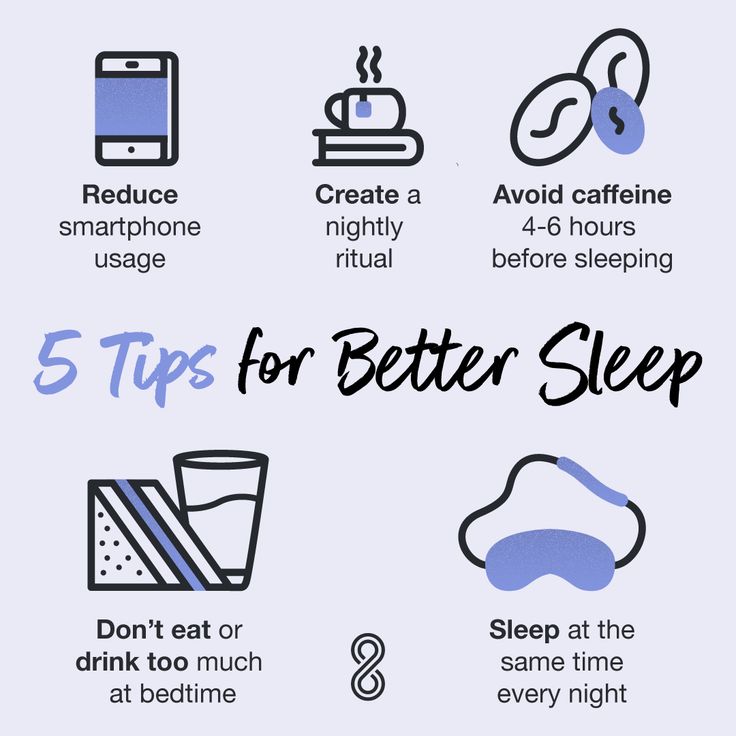
Relax your muscles
Relaxation techniques such as progressive muscle relaxation often help improve sleep. Beyond its potential sleep benefits, progressive muscle relaxation can also help relieve pain.
Here’s how to give it a try:
- Slowly tense one group of muscles.
- Hold the tension for 5 seconds, releasing on a slow exhale.
- Relax for 10 seconds.
- Move to the next muscle group.
Find more detailed steps for muscle relaxation here.
Accept wakefulness instead of fighting it
Not getting enough sleep can make you miserable, but fretting over your exhaustion and the precious sleep you’re missing won’t do you any favors.
Instead, try to accept that it’s just one of those nights and focus on reframing your thoughts.
You might tell yourself, for example:
- “I’m still awake now, but I’ll drift off eventually. I always do.”
- “Maybe I’ll be a little tired in the morning, but I’ll probably fall asleep right away tomorrow night.
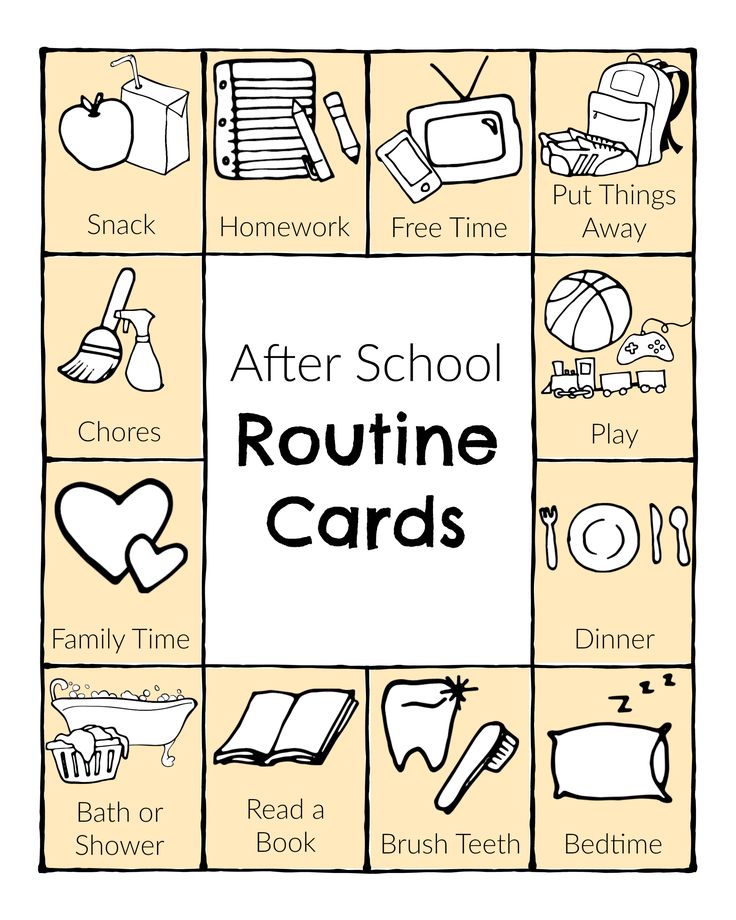 ”
” - “I’m going to need an extra pick-me-up tomorrow, so I’ll treat myself to a good lunch.”
There’s not really a right or wrong answer when it comes to building a nighttime routine, but there are a couple things you’ll want to avoid if you can.
Lying awake
If you feel wide awake after about 20 minutes — whether you’re trying to fall asleep or just woke up in the middle of the night — get up and do a quiet activity, like reading.
Avoid turning on bright lights or doing anything too stimulating. Once you start feeling sleepy again, go back to bed.
Sleeping too long
Too much sleep is a thing. Most people should aim for 7 to 9 hours of sleep each night.
You should stick to the same sleep routine, even on vacations and weekends, since sleeping late some days can throw off your internal clock.
Any adjustments should stay within an hour of your usual sleep and wake times.
Good sleep is a key factor in mind and body wellness, but it can be hard to come by.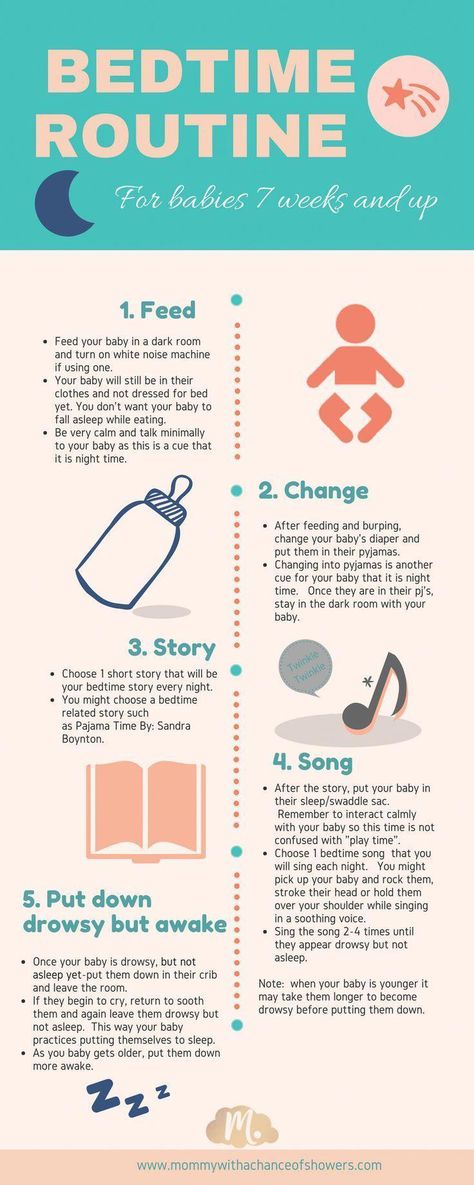 A personalized nighttime routine can help you get better sleep, allowing you to wake up refreshed and ready to take on the day.
A personalized nighttime routine can help you get better sleep, allowing you to wake up refreshed and ready to take on the day.
If a new nighttime routine doesn’t have much effect on sleep quality, talking to your healthcare provider is a good next step to make sure there isn’t an underlying health issue contributing to your sleep issues.
Crystal Raypole has previously worked as a writer and editor for GoodTherapy. Her fields of interest include Asian languages and literature, Japanese translation, cooking, natural sciences, sex positivity, and mental health. In particular, she’s committed to helping decrease stigma around mental health issues.
23 Tips for Your Ideal Nighttime Routine
Trouble sleeping? You’re not alone. About 1 in 3 adults in the United States get less sleep than they should.
In the midst of the pandemic, you might have more time for sleep, but sleep quality might still take a hit, thanks to added anxiety and stress from loneliness, health worries, financial concerns, and other issues.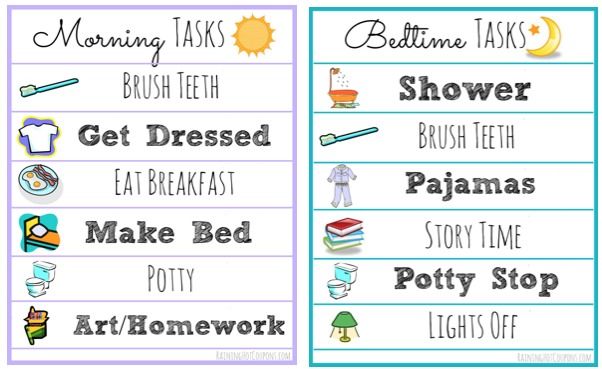
Nighttime routines also commonly factor into sleep quality, regardless of anything else happening in the world. Your activities during the evening hours can have a big impact on your ability to fall asleep and stay asleep each night.
Poor sleep can have plenty of health consequences, many of which you might worry about while lying awake. If you have trouble getting enough restful sleep on a regular basis, try exploring your pre-bedtime habits to identify potential problem areas and create a new routine that promotes better sleep.
Here are some tips to get you started.
A bedtime routine that includes a few steps toward preparing for the next day can have several advantages.
First, getting a head start on tomorrow’s to-do list gives you one (or two or three) fewer things to stress over as you try to fall asleep.
Having less to do in the morning can help you feel less rushed, making it easier to set aside a few minutes for morning meditation or a mindful breakfast that’ll start your day off right.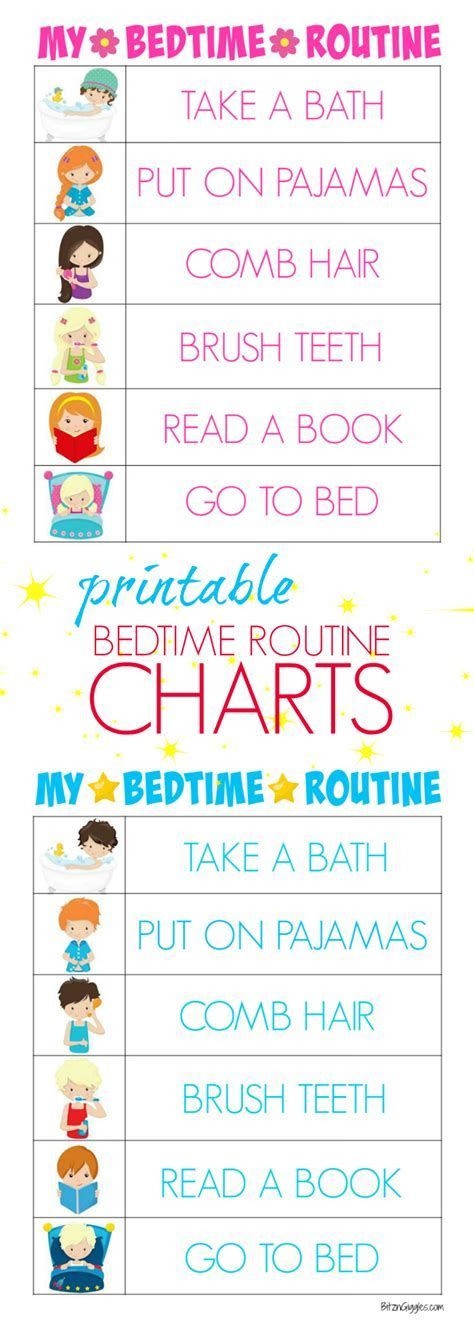
Take care of morning chores
If you struggle to get started in the morning, ask yourself what usually holds you up.
Maybe you spend a lot of time deciding on an outfit or never know where to find your keys. Perhaps you need a hearty breakfast to begin your morning but have to clear the sink of last night’s dishes first.
Setting aside 15 to 30 minutes every evening to prepare for the next day can help prevent hectic mornings and promote peace of mind as you get into bed.
To reduce bedtime stress and feel more relaxed in the morning, try taking care of these chores in the evening:
- Make your lunch for work or school.
- Gather your essentials — think keys, wallet, sunglasses — in one spot.
- Wash the dishes.
- Set out your clothes for tomorrow.
Make a to-do list
There’s only so much you can do in preparation for tomorrow. But for everything else, there’s a list.
Spending just 5 minutes writing a to-do list each night can help you avoid the sleep-disrupting habit of thinking about everything you need to do as you’re trying to fall asleep.
A paper to-do list can free you from the urge to constantly run through a mental version. It can also help you feel more in control of tomorrow before it even begins.
Try journaling to relieve stress
A journal provides a space to express any concerns weighing on your mind, reducing the need to unpack them mentally in bed.
While journaling may not be enough to relieve severe anxiety or chronic stress, it can help reduce anxious thoughts. Physically writing about things stressing you out can help you visualize them leaving your mind and reinforce your sense of relief.
Writing about stress-provoking upcoming events (and noting a potential solution or two) may also help you feel more prepared to face them, which can ease anxiety.
You don’t have to wait until it’s lights-out to start winding down. Filling your evening hours with calming activities helps you avoid overstimulating your mind and body as the day draws to a close.
Cut off caffeine early
A regular post-lunch cold brew might help you make it through the day, but this caffeine boost can have consequences later.
Having caffeine even 6 hours before bedtime can disrupt your rest. If you often have trouble sleeping, try sticking to beverages without caffeine after lunch.
Avoid strenuous exercise
Yes, regular exercise can improve sleep, but you’re better off saving intense workouts for morning or afternoon.
Vigorous exercise shortly before bedtime raises your body temperature and heart rate, making it harder to fall asleep and potentially reducing the amount of sleep you get.
It’s perfectly fine to do light or moderate intensity exercise in the evening, though.
Instead of a run or heavy weightlifting session, try:
- stretching
- walking
- yoga
Just keep in mind that even with light exercise, it’s still best to wrap up an hour to 90 minutes before bedtime.
Meditate
A regular meditation practice can help you relax physically and mentally. Mindfulness meditation, in particular, may help improve your ability to release the day’s stress and tension in preparation for a good night’s sleep.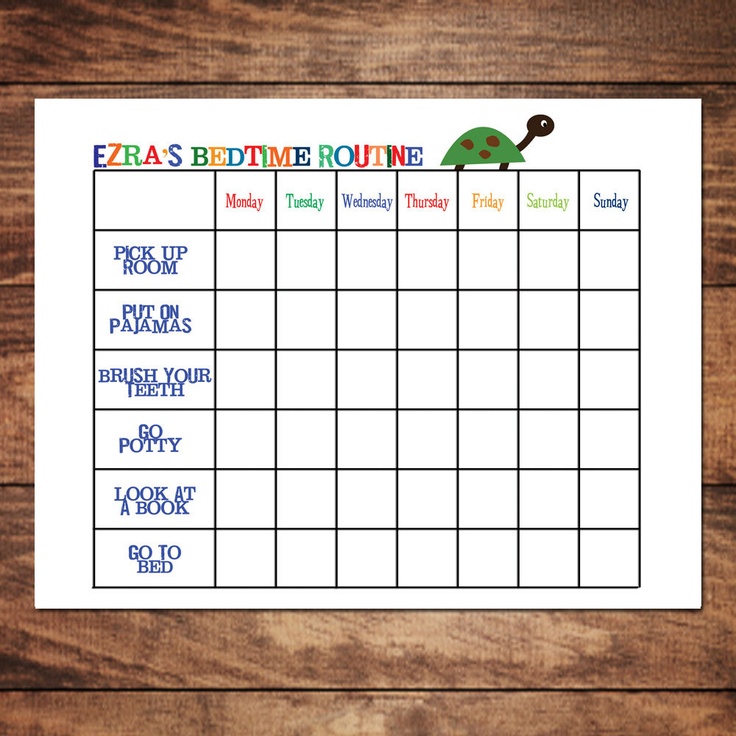
Focusing your awareness and sitting mindfully with your thoughts gives your body a chance to rest and relax. All those slow, deep breaths you’re taking? They cue your body to slow down at the same time.
Meditation can also help reduce behaviors that keep you up, like cycling through anxious thoughts.
Can’t meditate in the evening? Try these tips to make it a habit any time of day.
Put on some calming music
Playing soft, soothing music as you prepare for bed can trigger the release of hormones that help improve your mood. Feeling emotionally at peace can help your body feel calmer, too.
While music may help you fall asleep faster and get better sleep, make sure you stick with calming tunes. Energizing, upbeat music probably won’t have quite the effect you’re hoping for. For best results, try slow music without lyrics.
Change up your hobbies
Catching up on a favorite show at the end of a long day can feel relaxing, but try to avoid doing this within an hour or so of bedtime.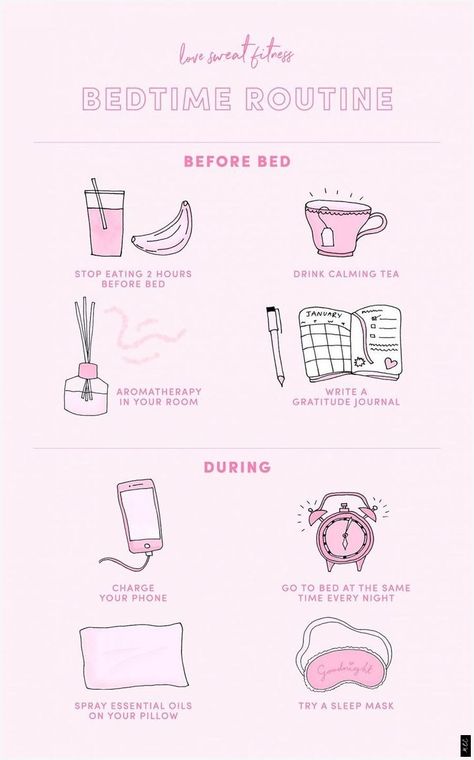
The blue light produced by electronic devices can confuse your brain, which links this light to daytime. If your brain thinks it’s time for you to be awake, it won’t tell your body to produce melatonin, a hormone that helps prepare you for sleep.
Using devices to scroll through social media, play games, watch videos, or chat with friends can also keep your brain active when you need it to start calming down.
Consider adding these activities to your nighttime routine instead:
- assembling jigsaw puzzles
- building models
- reading (but stick to paper books or an e-reader that gives off minimal light)
- drawing or coloring
- doing word or number puzzles
Create a family bedtime ritual
Connecting with loved ones — whether that’s your partner, children, or (good) roommates — can increase feelings of love, trust, and happiness.
Generating these positive emotions just before bed can put you in a better mood, helping you feel more at ease when it’s time for bed.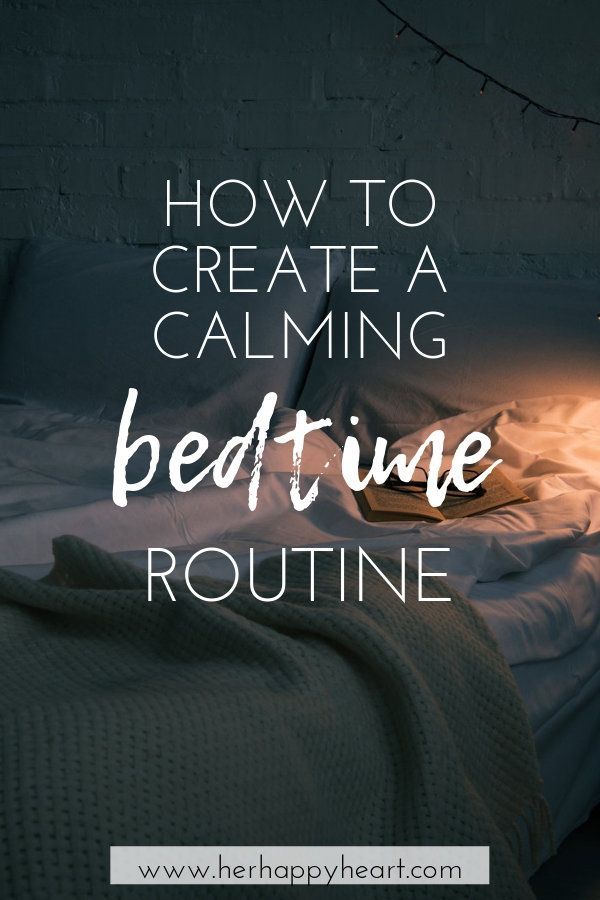
Regardless of any other benefits, spending quality time with people you love can strengthen your bond and help lower stress.
Try:
- reading aloud to each other
- trading massages with your partner
- sharing highlights from your day
- cuddling or playing with pets
Make time for sex
Experts continue to explore the connection between sleep and sex, but evidence does suggest a potential link between sex before bed and improved sleep.
In one 2017 research survey, over 60 percent of the 282 adults who replied to the survey said their sleep improved after having an orgasm with a partner.
Oxytocin release during sex may be one explanation. The release of this “love hormone” can promote relaxation and a sense of well-being. Kissing and cuddling can also trigger oxytocin release, so any type of intimate contact before bed has benefit.
You don’t need a partner to add sex to your nighttime routine. Solo orgasms are a perfectly natural way to relax and get off to sleep more easily.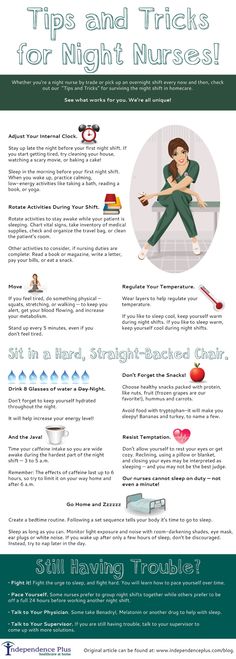
Make hygiene a ritual
It’s pretty normal for basic bedtime hygiene to happen on autopilot. But performing cleansing routines with more mindfulness than absentmindedness can help your brain and body tune in to your approaching bedtime.
Washing your face and showering can feel like boring chores you’d rather skip, but it’s possible to make these mundane tasks more pleasant and relaxing.
Build a ritural
- Instead of a quickly scrubbing your face, practice the 60-second rule. Gently wash your face for a full minute. Imagine washing away the stress of the long day as you cleanse your skin, or use a mantra or focused breathing to slow down.
- Take a hot bath. Research suggests that an hour or two before bed is ideal for a nighttime bath. If you’re sensitive to bubble bath or bath salts, create a relaxing atmosphere with scented candles.
- Avoid bright lights. That bright overhead lighting in your bathroom? Not a great vibe for getting sleepy.
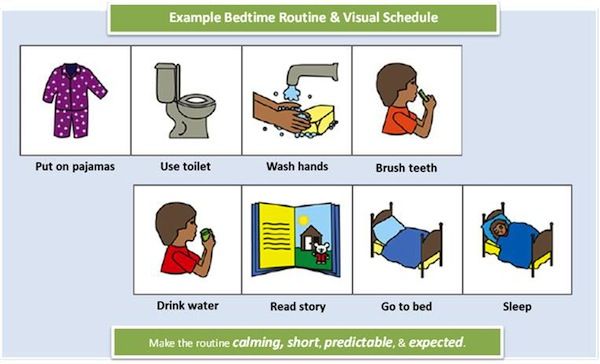 Consider bringing some candles into the bathroom and doing your nightly routine with the lights off. For an added benefit, choose one with a calming scent, like lavender.
Consider bringing some candles into the bathroom and doing your nightly routine with the lights off. For an added benefit, choose one with a calming scent, like lavender.
Don’t forget your teeth
Every nighttime routine should include 2 minutes for toothbrushing. Practicing mindfulness during this essential ritual can make it even more beneficial.
Set a timer for 2 minutes, then focus on your motions as you brush. Notice the sensation of the bristles on your teeth and the taste of the toothpaste.
Remind yourself of everything your teeth do for you. You might even try a mantra, such as “I’m grateful for my teeth.”
It’s also never a bad idea to revisit the basics of proper brushing.
Instead of simply switching off the lights at bedtime, try preparing your environment for sleep earlier in the evening. This gives your body time to adjust to the idea of sleep.
Dim the lights
Like electronics and the sun, electric lighting also produces blue light.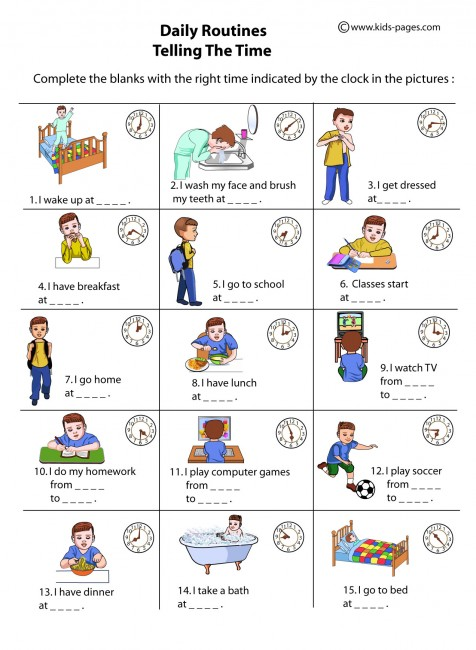 Avoiding bright lights in the evening can help signal to your body that it should start preparing for sleep.
Avoiding bright lights in the evening can help signal to your body that it should start preparing for sleep.
- Switch off bright overhead lights and turn on dimmer table lamps an hour or two before bed.
- Consider replacing lamp bulbs with ones that produce amber light.
Try aromatherapy
Calming fragrances, like lavender and cedarwood, can promote restful sleep.
To benefit from aromatherapy:
- Scent your bath with a few drops of essential oil.
- Place a diffuser containing essential oil in your bedroom.
- Use a few drops of essential oil on your pillow before bed.
Check your bedding
Clean sheets and fluffed pillows can make bed seem more inviting, and a comfortable bed can help you get better sleep.
Use season-appropriate sheets and blankets. Flannel sheets in the summer can make you too warm, and you might wake up sweaty and itchy.
For year-round bedding, go for easily removable, light layers so you can make quick adjustments if you feel or cold during the night.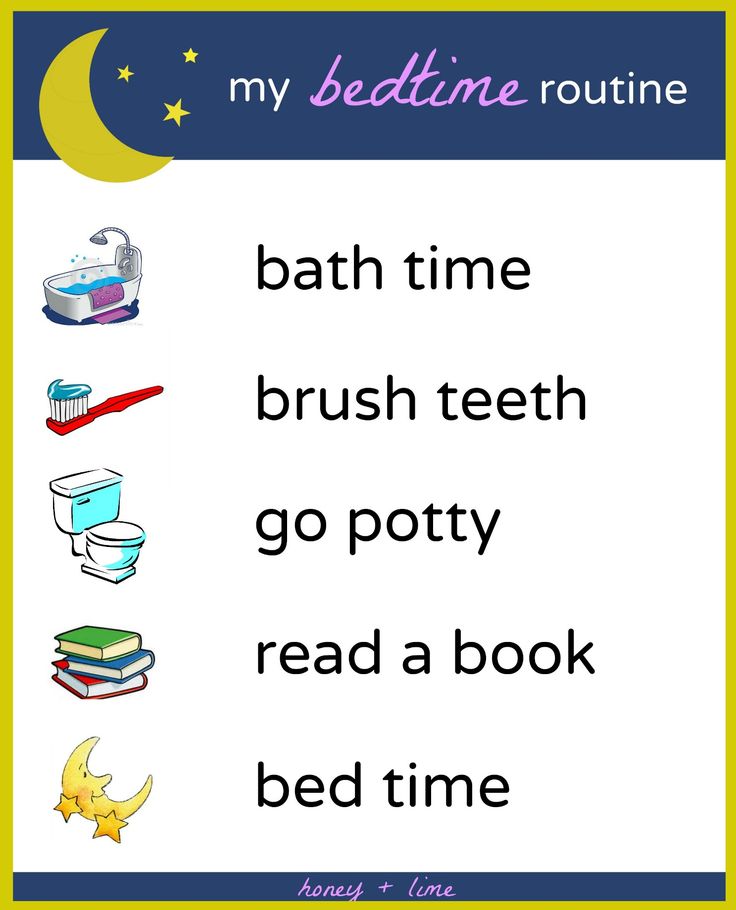
Shop our expert-verified products for achieving deeper sleep.
Update your pajamas
Changing into sleepwear can help your body feel more ready for bed, but choose your pajamas with care. How they feel on your body is more important than how they look.
Comfortable pajamas can make bedtime something to look forward to, while tight or uncomfortable sleepwear can keep you fidgeting under the covers.
Switch on a fan
A fan can play two important roles in your bedtime routine.
First, it cools off your bedroom. Keeping your room on the cooler side can help you stay comfortable despite normal body temperature changes that happen during sleep.
Fans also produce white noise, which can block out noises that might keep you up. Hearing that low hum can help increase your confidence that you’ll sleep well, even if your roommate ends up arguing with their partner in the middle of the night.
Now that you’ve wound down and hopped into bed, how to drift off to sleep?
Think peaceful thoughts
Fixating on worrisome thoughts can keep you awake and stressed.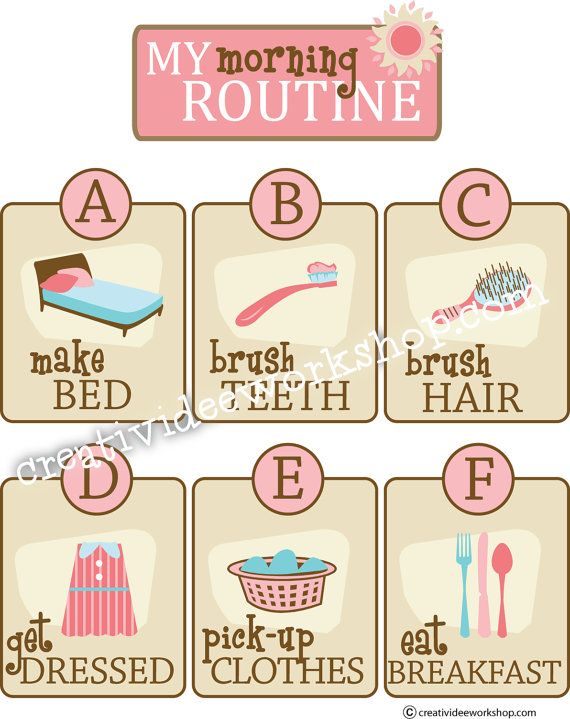 Instead, try focusing on positive things that happened that day or events you’re looking forward to.
Instead, try focusing on positive things that happened that day or events you’re looking forward to.
Some people also find listing a few things they’re grateful for promotes positive feelings and inner calm.
It may also help to repeat a soothing mantra, such as “I feel relaxed” or “I’m drifting off to sleep.”
Try visualization
You can use visualization (guided imagery) to create restful scenes in your mind and distract yourself from any worries creeping into your thoughts.
You might imagine a quiet beach with waves brushing against the shore, a sunlit forest, or a hammock under the stars.
Picture this landscape in vivid detail, imagining how relaxed and calm you feel. You can even put yourself into the image, breathing slowly and peacefully as you relax in your chosen environment.
Relax your muscles
Relaxation techniques such as progressive muscle relaxation often help improve sleep. Beyond its potential sleep benefits, progressive muscle relaxation can also help relieve pain.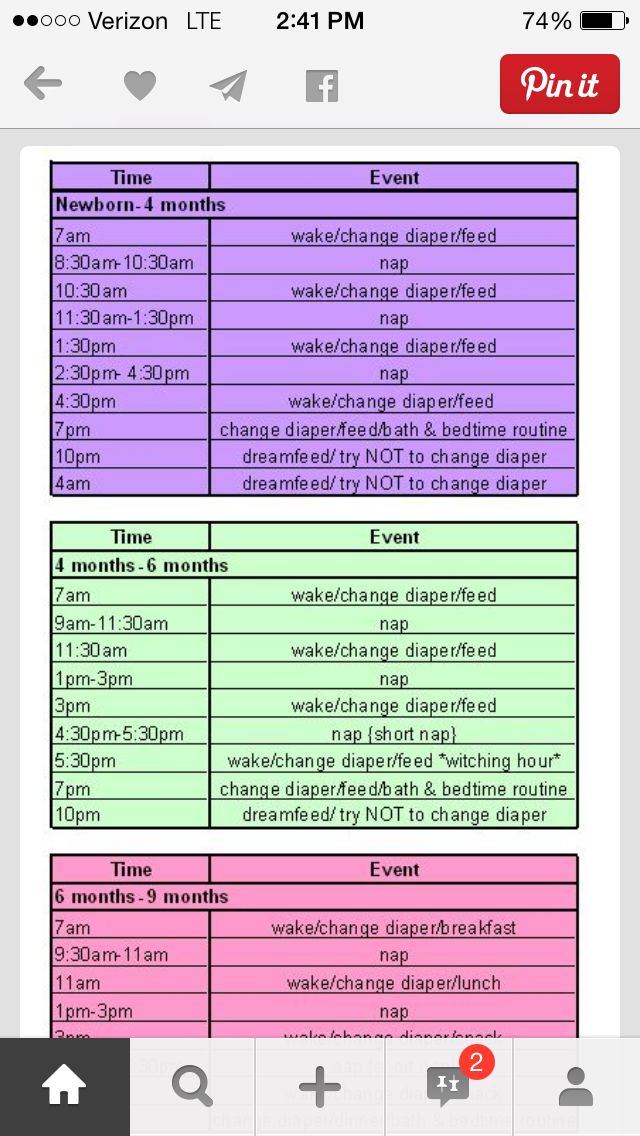
Here’s how to give it a try:
- Slowly tense one group of muscles.
- Hold the tension for 5 seconds, releasing on a slow exhale.
- Relax for 10 seconds.
- Move to the next muscle group.
Find more detailed steps for muscle relaxation here.
Accept wakefulness instead of fighting it
Not getting enough sleep can make you miserable, but fretting over your exhaustion and the precious sleep you’re missing won’t do you any favors.
Instead, try to accept that it’s just one of those nights and focus on reframing your thoughts.
You might tell yourself, for example:
- “I’m still awake now, but I’ll drift off eventually. I always do.”
- “Maybe I’ll be a little tired in the morning, but I’ll probably fall asleep right away tomorrow night.”
- “I’m going to need an extra pick-me-up tomorrow, so I’ll treat myself to a good lunch.”
There’s not really a right or wrong answer when it comes to building a nighttime routine, but there are a couple things you’ll want to avoid if you can.
Lying awake
If you feel wide awake after about 20 minutes — whether you’re trying to fall asleep or just woke up in the middle of the night — get up and do a quiet activity, like reading.
Avoid turning on bright lights or doing anything too stimulating. Once you start feeling sleepy again, go back to bed.
Sleeping too long
Too much sleep is a thing. Most people should aim for 7 to 9 hours of sleep each night.
You should stick to the same sleep routine, even on vacations and weekends, since sleeping late some days can throw off your internal clock.
Any adjustments should stay within an hour of your usual sleep and wake times.
Good sleep is a key factor in mind and body wellness, but it can be hard to come by. A personalized nighttime routine can help you get better sleep, allowing you to wake up refreshed and ready to take on the day.
If a new nighttime routine doesn’t have much effect on sleep quality, talking to your healthcare provider is a good next step to make sure there isn’t an underlying health issue contributing to your sleep issues.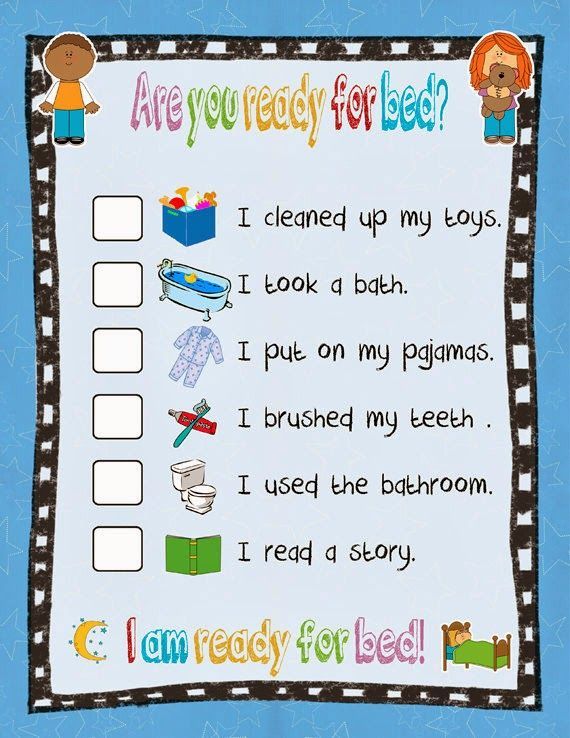
Crystal Raypole has previously worked as a writer and editor for GoodTherapy. Her fields of interest include Asian languages and literature, Japanese translation, cooking, natural sciences, sex positivity, and mental health. In particular, she’s committed to helping decrease stigma around mental health issues.
A daily routine that will help you do everything and stay healthy
December 26, 2017 Productivity
Plan for the day, from 6 am to 10 pm, to enjoy life without sacrificing efficiency.
Don't be discouraged if at first you can't follow the whole schedule. Over time, these things will turn into habits that will not be so easy to get rid of.
6:00. Wake up
Wake up and sing! If possible, immediately plunge into the rays of sunlight.
6:15 am. Think good things
Think of two or three things in your life, no matter how important, that you are grateful for. You will be surprised how quickly your anxiety about the day ahead will disappear.
6:30. Get moving
Do some simple exercises to get your blood moving. Then energize yourself with a protein shake, oatmeal, Greek yogurt, or eggs, especially hard-boiled eggs, to keep you going until lunchtime.
8:00 am. Get out of the house
You can listen to a podcast or audiobook when you get to work. It is better to choose something unfamiliar - this will help to learn new things and keep the mind fresh.
If you can't enjoy your listening experience while on the road, do something useful. For example, think of a to-do list for the day, or mentally rehearse an upcoming presentation.
9:00. Get to work
Organize your workflow in such a way that you do not overload yourself and do not waste the positive energy generated in the morning. Once you've got your to-do list ready, turn off your phone, log out of email and social media, and get to work. As a last resort, try every 90 minutes turn on Do Not Disturb mode.
12:00.
 Restore your energy
Restore your energy Use your lunch time to restore not only your body, but also your mind. Go back to what you listened to or read in the morning, or try some meditation. If you are an extrovert, then chat with colleagues - this way you will fill yourself with energy even more.
If you have to have lunch at the computer while working, then at least the food is healthy. It could be a fresh vegetable salad, a lean meat roll, or just a peanut butter sandwich on whole wheat bread.
15:00. Take a break
No one canceled the afternoon productivity slump, but there is no reason to give yourself completely to it. Instead of eating something sweet or drinking an energy drink, take a break and take a short walk - at least near the office.
If the craving to eat something is irresistible, then give preference to complex carbohydrates and lean proteins. The former contribute to the release of energy, the latter make you more alert. A great option is whole grain crackers with cheese, dried or fresh fruit, raw vegetables with hummus, or a nut mix.
18:00. Go home
The working day is over, so leave work at work. It's time to relax. If you don't like morning exercise, then it's time to go to the gym or go for a long walk with the dog. Alternatively, go somewhere where you can interact with people. Any activity that helps you forget about work will do.
19:00. Eat dinner
It is best to eat at least three hours before you go to bed, otherwise the food will not have time to be digested before bedtime. Avoid foods high in fat and carbohydrates. Good sleep aids include salmon, whole grains, yogurt, and bananas.
You may feel sleepy after swallowing a huge slice of pizza or a triple cheeseburger. But a restless "food coma" will never replace your healthy sleep. And, of course, try to avoid alcohol.
21:00. Relax
Meditation, a warm bath, a cup of herbal tea, or just a good book can help you unwind before bed. Try not to watch TV at night and do not check work documents on the computer.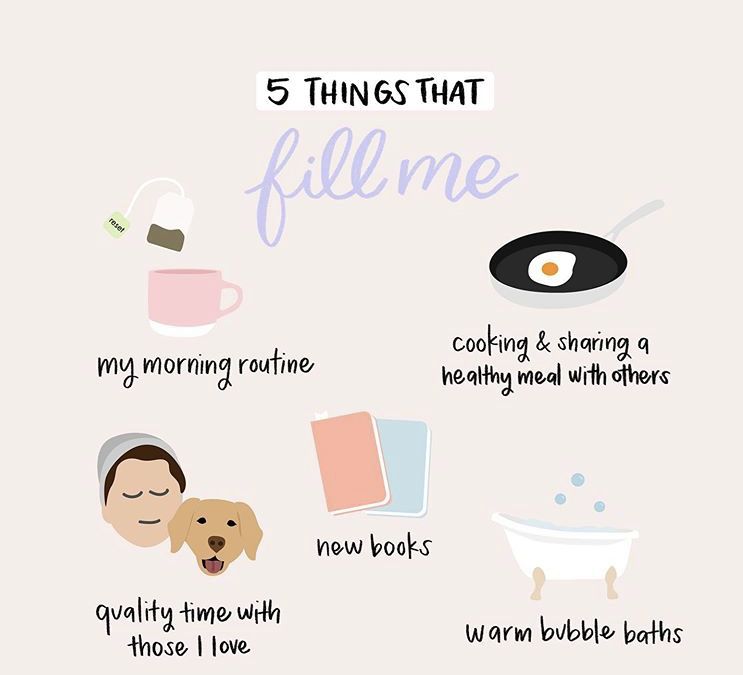 The blue light that comes from the screen disrupts circadian rhythms and prevents the brain from producing melatonin, a natural hormone that promotes good sleep. As a last resort, use a feature on your computer or smartphone that reduces blue light to a minimum.
The blue light that comes from the screen disrupts circadian rhythms and prevents the brain from producing melatonin, a natural hormone that promotes good sleep. As a last resort, use a feature on your computer or smartphone that reduces blue light to a minimum.
22:00. Go to bed
No matter how hard you try to shield yourself from daytime stress at night, it can still overtake you. Various little things help in the fight against him. Turn the alarm clock with LED screen to the wall, and let the bedroom be cool (about 18 ° C) and dark (lack of light also helps to produce melatonin). Do not think about how to fall asleep as soon as possible - just breathe.
If sleep is still in your eyes, turn on relaxing music or white noise, write something in your diary, or do a small and boring task that you constantly put off.
Lesson 1. Correct daily routine
How to create a correct daily routine is one of the most important topics of a healthy lifestyle.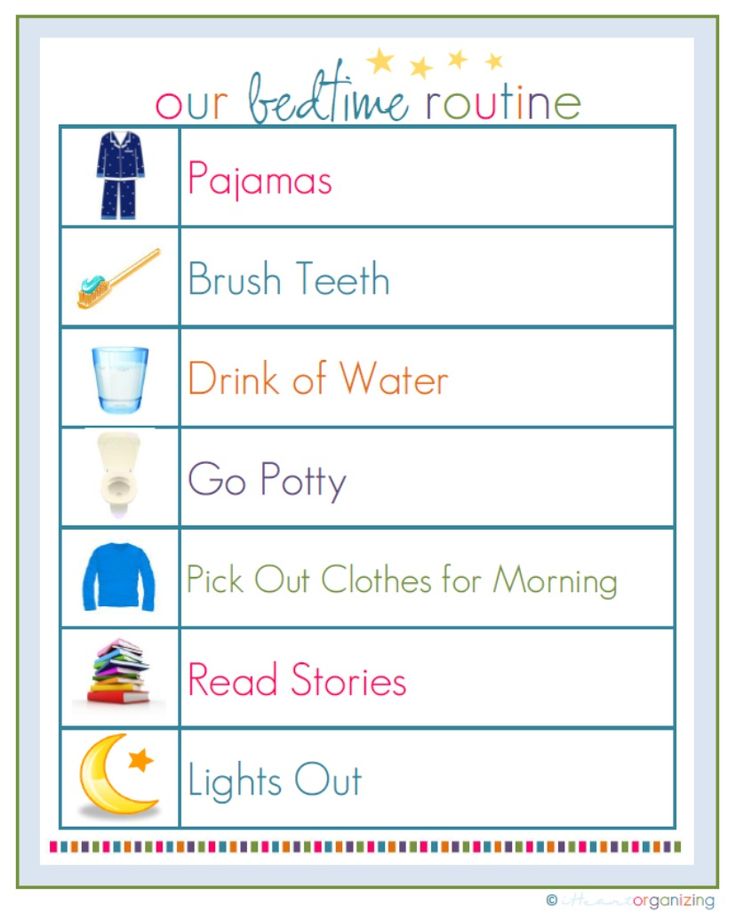 Everyone is faced with the need to allocate their time. Sometimes, as in the case of work, this is a necessity. Sometimes, for example, when planning the most productive pastime or vacation, this is expediency.
Everyone is faced with the need to allocate their time. Sometimes, as in the case of work, this is a necessity. Sometimes, for example, when planning the most productive pastime or vacation, this is expediency.
Proper daily routine includes the rational use of sleep, personal hygiene, nutrition, work, rest, sports and physical activity. Planning a daily routine and following it makes a person disciplined, develops organization and focus. As a result, a mode of life is also developed, in which the expenditure of time and energy on non-essential things is minimized.
In this lesson, answers will be given to questions about the correct daily routine, the features of the influence of biological rhythms on the activity and efficiency of human activity, the main approaches and methods for compiling a daily routine for different people: men and women of different professions, adults, students and schoolchildren.
Contents:
- What is the daily routine
- Biological rhythms and daily routine
- Owls and larks
- Components of the daily routine
- How to plan your daily routine
- Verification test
What is the routine of the day
Let's start with the definition:
Daily routine is a well-thought-out schedule of actions for the day, planning time for the purpose of its rational and most efficient distribution.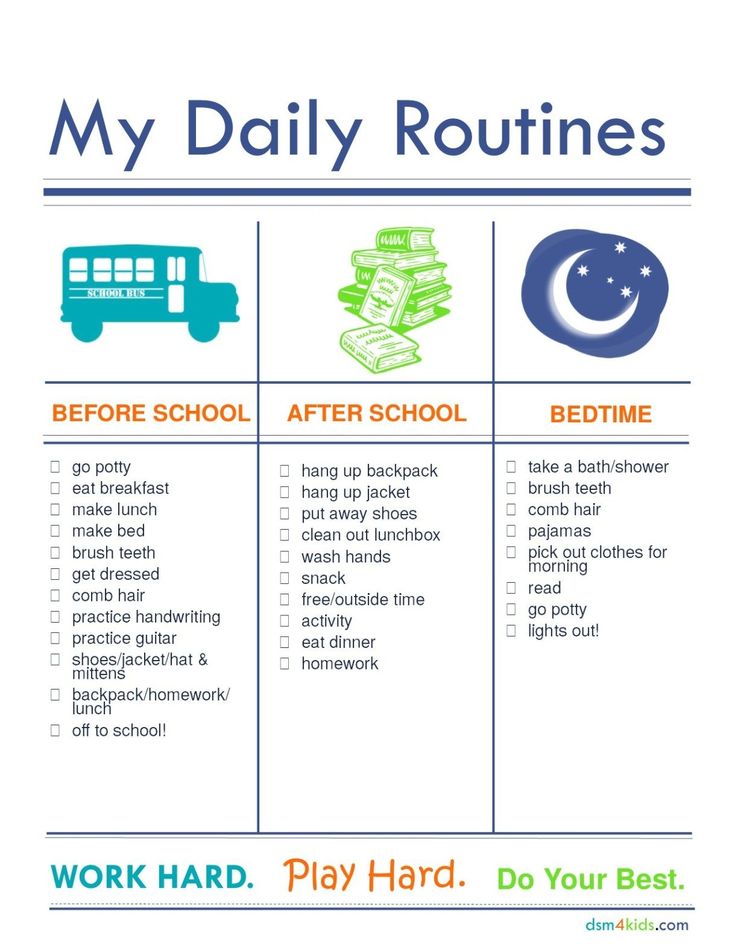
As mentioned above, the routine is of great importance for the self-discipline and organization of any person, and it is also important for many other applied aspects of our lives. For example, the daily routine plays an important role in building training programs, compiling diets and organizing proper nutrition in general, choosing the most productive hours of our lives for work or creativity.
Mason Curry, in his book The Genius Routine: The Daily Routine of Great People, gives the following analogy to the routine:
we lack most of all, as well as willpower, self-discipline, optimism. An orderly routine is like a track along which mental forces move at a good pace…”
The routine of the day is necessary so that time does not take advantage of our absent-mindedness (see epigraph). Each person faced in his work haste, a sense of the amorphousness of time, confusion in personal and work affairs. We cannot always clearly tell how much time we spent on this or that activity, because we do not consider it necessary to constantly monitor the use of our time.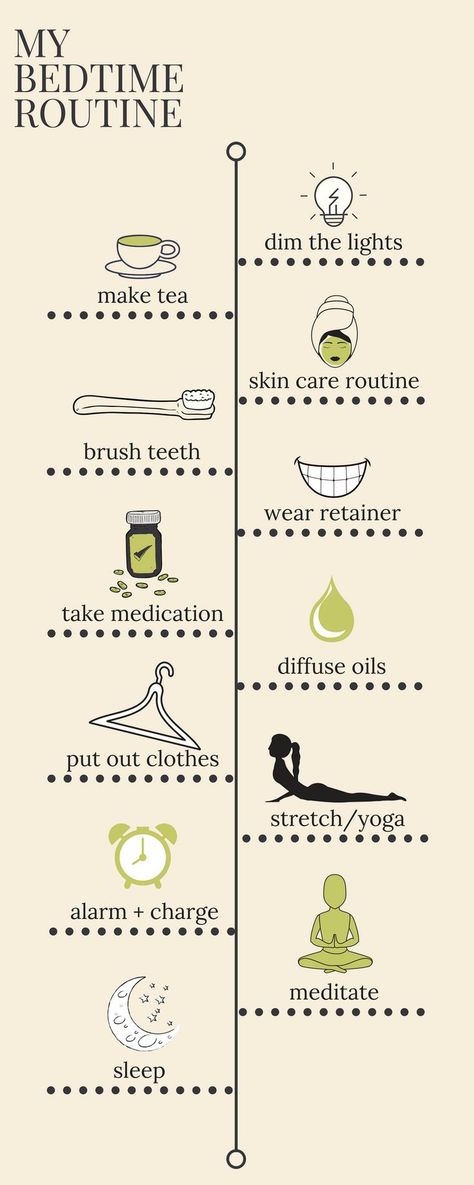 However, it is the whole day's routine that helps to most intelligently and effectively allocate your time. In addition, without the skill of successfully planning your day, a person will not learn how to make longer-term plans, especially since it is not so difficult to plan your daily schedule completely, because:
However, it is the whole day's routine that helps to most intelligently and effectively allocate your time. In addition, without the skill of successfully planning your day, a person will not learn how to make longer-term plans, especially since it is not so difficult to plan your daily schedule completely, because:
| ✔ | Day as the minimum unit for planning is most convenient due to easy visibility. |
| ✔ | If any attempt fails, you can rebuild and change the mode the next day. |
Let us also note the fact that the use of the epithet "correct" in relation to the daily routine is somewhat conditional. Individually for each person, the concept of the correct routine can be different and depend on many factors: work, habits, characteristics of the body. But, according to experts (psychologists and doctors), the physiological aspects of the functioning of the main life systems of people are identical [Wedemeyer G.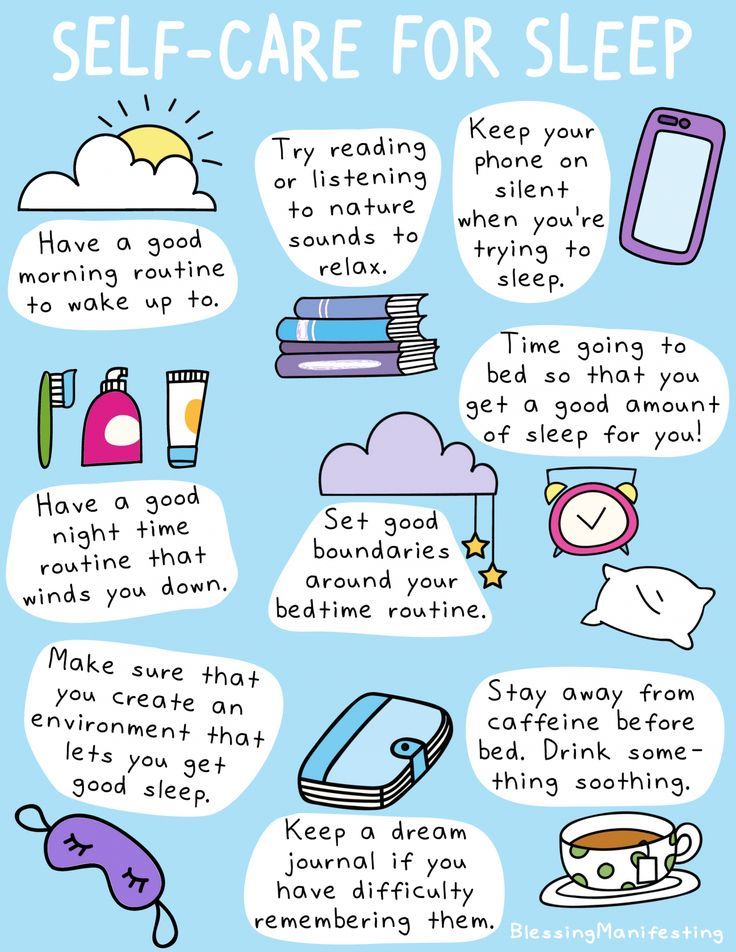 A., 1996]. On the basis of this, it is possible to compile a universal regimen containing general recommendations that will suit everyone to one degree or another. Based on the proposed recommendations, taking into account your individual needs, you can develop a daily routine that is best for you.
A., 1996]. On the basis of this, it is possible to compile a universal regimen containing general recommendations that will suit everyone to one degree or another. Based on the proposed recommendations, taking into account your individual needs, you can develop a daily routine that is best for you.
Biological rhythms and daily routine
Without taking into account the daily biological rhythms of the body, a person is unlikely to be able to create an organized and effective daily routine [Nature, 2009]. For example, if a person who is used to usually waking up at 7 am, sleeps until 4 pm one day, after waking up, he will most likely feel tired, weak, slowing down the pace of activity. This condition occurs as a result of ignoring the features of biological rhythms, biological clocks and circadian rhythms.
Biological rhythms ( biorhythms ) – periodically recurring changes in the nature and intensity of biological processes and phenomena in living organisms, on which their functionality depends.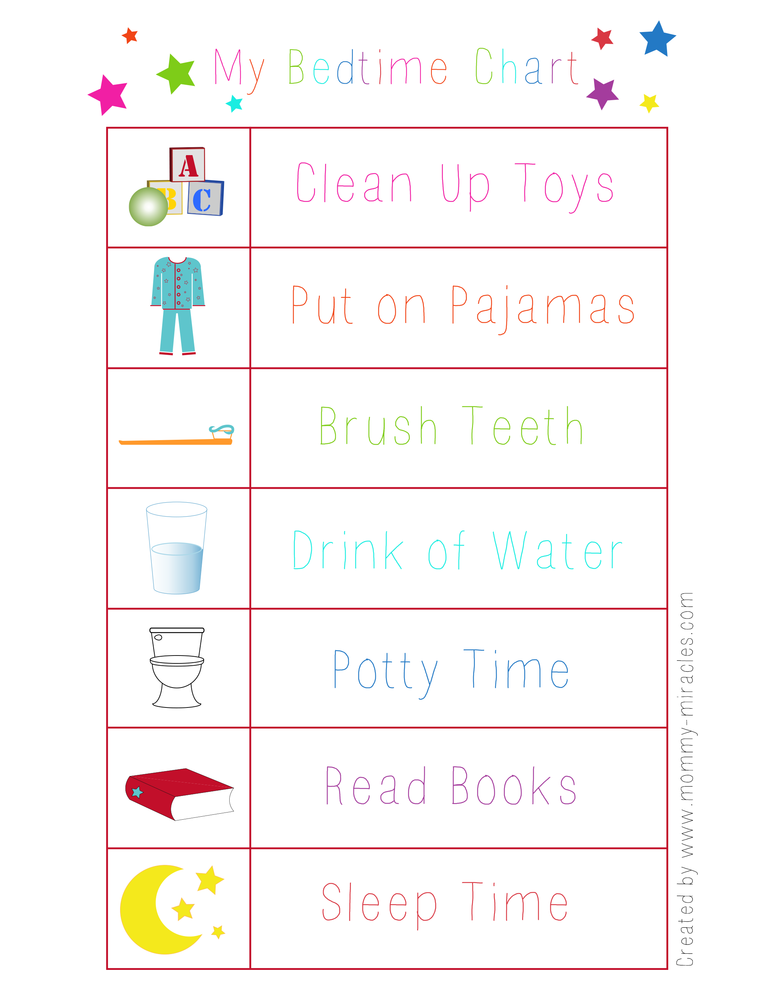
Biorhythms are internal ( endogenous ), depending on the body's biological clock, and external ( exogenous ), which manifest themselves in the synchronization of internal cycles (change of sleep and wakefulness) with external stimuli (change of day and night). In terms of compiling the daily routine, we are most interested in circadian rhythms - cyclic fluctuations in the intensity of various biological processes associated with the change of day and night, the period of which is approximately equal to 24 hours [Komsomolskaya Pravda, 2016].
Many researchers, until recently, attributed the study of biorhythms to a non-academic area of physiology, but thanks to recent research, the situation has changed somewhat. So, in the human brain, they found a tiny cluster in the hypothalamus, about 20,000 neurons in size, which controls many of the body's circadian rhythms. Known as the suprachiasmatic nucleus (SCN), this center performs the work of the body's internal pacemaker and affects human biorhythms [Moore R.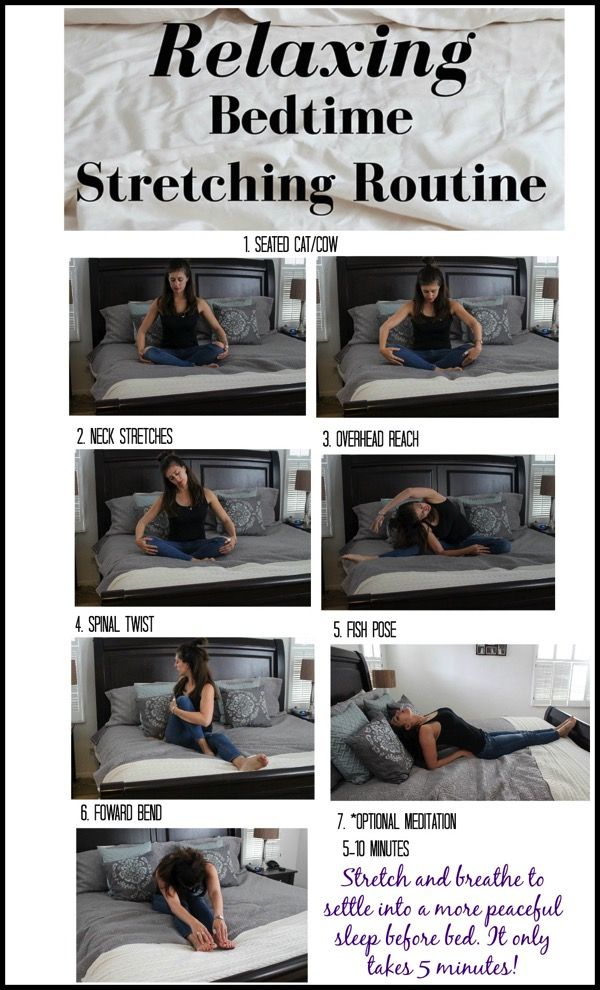 Y., 2001].
Y., 2001].
Owls and larks
Psychologists often refer to the well-known division of people into "owls" and "larks" depending on the period of their activity. It is difficult for the first to get up early in the morning, and the peak of their activity falls on the evening and night hours. The latter, on the contrary, are active in the morning, and by the evening they quickly lose their energy reserves. Interestingly, in many African countries there are practically no “owls”, this is due to the fact that many villages and cities are not electrified, which means that when the sun sets, local life stops.
The proposed classification is rather arbitrary, because, as practice shows, a normal healthy person, if desired, can gradually change his type of wakefulness without harm to the body. The main thing is the presence of willpower and the right strategy.
For example, many politicians, businessmen, athletes who travel a lot around the world often have to adjust their circadian rhythms in accordance with the time difference between cities in order not to lose efficiency in their work when changing time zones.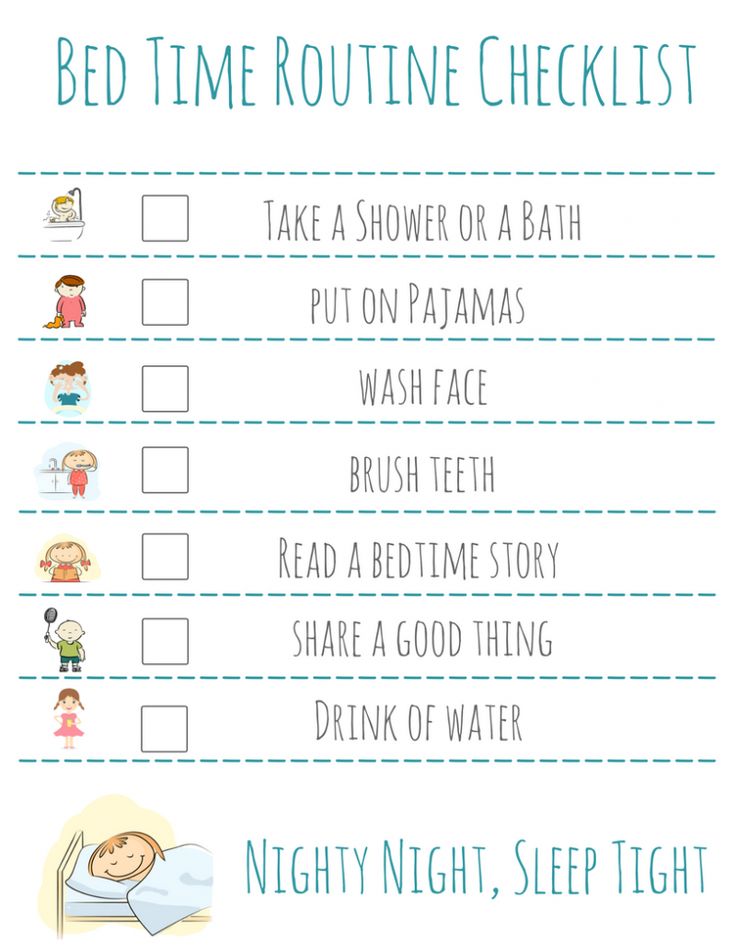 In practice, even special recommendations have been developed that will help to rebuild your regime as painlessly as possible after changing the time zone. For this you are follows:
In practice, even special recommendations have been developed that will help to rebuild your regime as painlessly as possible after changing the time zone. For this you are follows:
| 1 | Plan the first days of arrival so that, if possible, the psychological and physical stress is minimal. |
| 2 | Eat only light meals two days before your flight, avoid alcoholic beverages and foods that you are not used to, and refrain from smoking if possible. |
| 3 | Please note that it is better to fly from east to west on a morning or afternoon flight, and from west to east - in the evening. |
| 4 | 3-5 days before departure, gradually rebuild your schedule in accordance with the time zone of the place where you are going to fly. |
| 5 | If you're flying west, try to go to bed and wake up later. When traveling eastward, you need to fall asleep earlier and wake up early in the morning.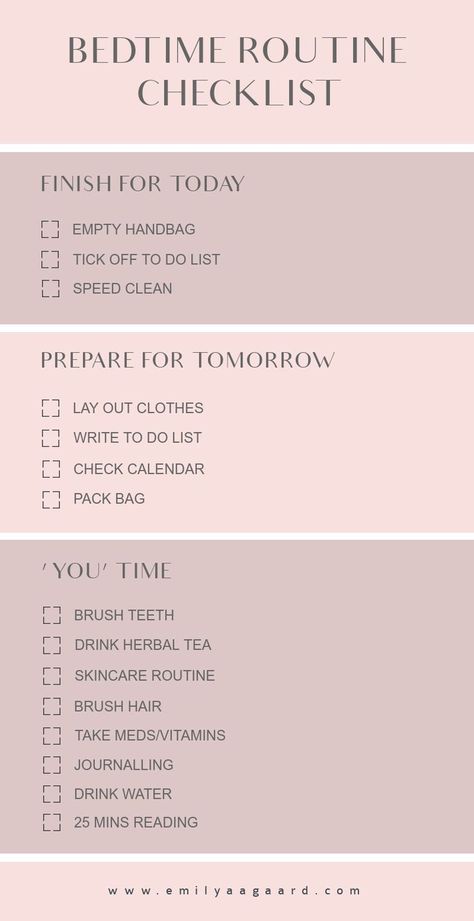 |
Often people do not even have to use their willpower to change their activity regime, since the human body is able to independently adapt to changing external conditions. For example, regular schoolchildren tend to go to class by 8:30 a.m. during a long period of study. Over the years, the student's body gets used to follow the given circadian rhythm, that is, to work actively in the first half of the day. However, if, after graduation, a graduate enters the university in the evening department, where classes are held on the second shift, the body has to adjust to the new schedule. Over time, the student's biological clock naturally adapts to the new system without much effort on his part.
Knowing how the biological clock works will help you plan your day correctly. Below is an approximate calculation of the periods of activity of different systems of an average person by hours:
04:00. The beginning of the circadian rhythm. At this time, the body releases the stress hormone cortisol into the bloodstream, which triggers the mechanisms of basic functions and is responsible for our activity. It is this hormone that helps wake up people who prefer to get up early.
At this time, the body releases the stress hormone cortisol into the bloodstream, which triggers the mechanisms of basic functions and is responsible for our activity. It is this hormone that helps wake up people who prefer to get up early.
05:00-06:00. Awakening of the organism. During this period, the metabolism accelerates, the level of amino acids and sugar increases, which do not allow a person to sleep soundly in the morning.
07:00-09:00. The ideal time for light physical activity, when you can quickly bring the body relaxed after sleep into tone. At this time, the digestive system works well: the absorption of nutrients occurs faster, which helps to efficiently process food and convert it into energy.
09:00-10:00. The period when the energy received from eating is mastered. During this time, a person is able to cope well with tasks for attention and quick wits, as well as successfully use short-term memory.
10:00-12:00.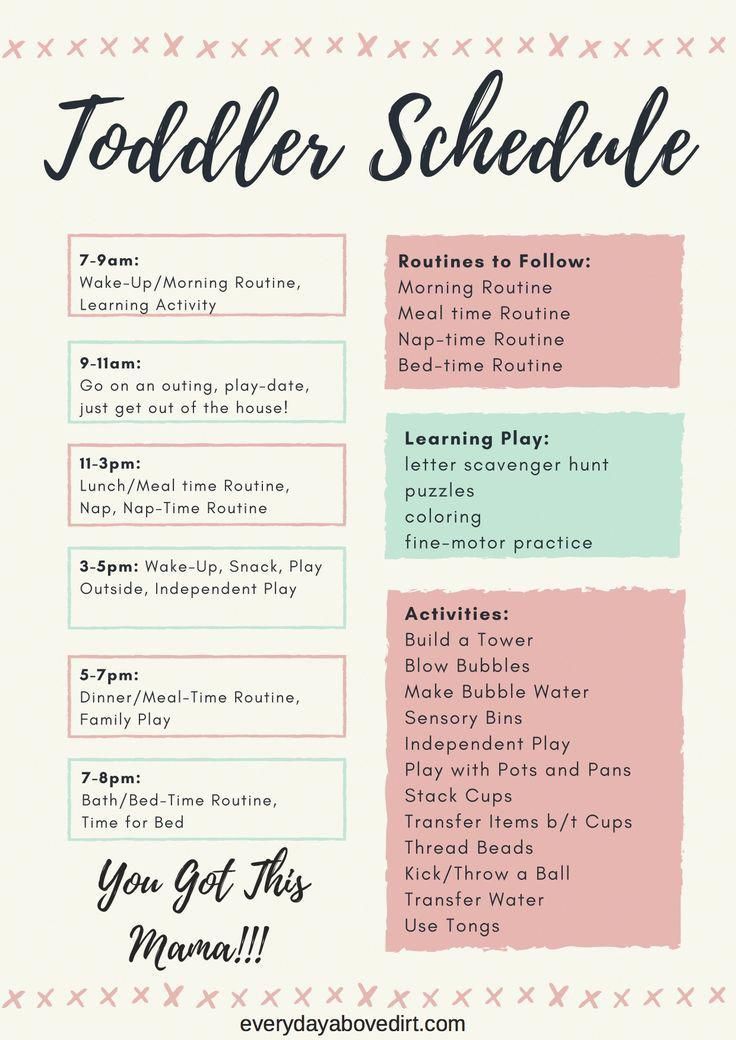 The first peak of efficiency, the period of maximum mental activity. At this time, a person copes well with tasks that require increased concentration.
The first peak of efficiency, the period of maximum mental activity. At this time, a person copes well with tasks that require increased concentration.
12:00-14:00. The time of deterioration of performance, when it is necessary to rest the tired brain. This period is suitable for a lunch break, as the work of the digestive tract accelerates, blood flows to the stomach, and the mental activity of the body decreases.
14:00-16:00. It is better to devote this time to the calm digestion of what you have eaten, as the body is in a state of slight fatigue after dinner.
16:00-18:00. The second peak of activity and efficiency. The body received energy from food, all systems again work in full mode.
18:00-20:00. The best time for dinner, the food received by the body will have time to digest until the morning. After eating, you can take a walk or after an hour to do physical exercises, go to training.
20:00-21:00.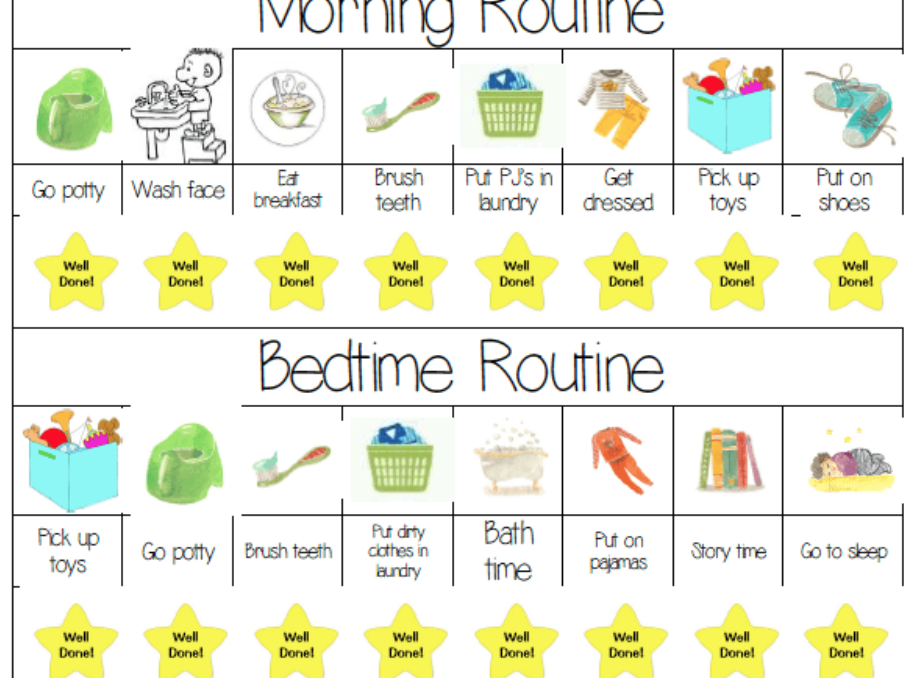 This time is suitable for playing sports, visiting sections, socializing.
This time is suitable for playing sports, visiting sections, socializing.
21:00-22:00. The period when the ability of the brain to memorize increases. At this time, eating is not recommended.
22:00. Start of the sleep phase. Recovery processes are launched in the body, hormones of youth are released. The body goes into a state of rest.
23:00-01:00. At this time, the metabolic process slows down as much as possible, body temperature and pulse rate decrease. The deep sleep phase is when our body is at its best resting.
02:00-03:00. The period when all chemical reactions are slowed down, hormones are practically not produced. Lack of sleep at this time can lead to a deterioration in condition and mood throughout the day.
Note: in the cold season there is a slight shift of the described processes of physiological activity forward in time.
Lark or Owl Test
We invite you to take a test to determine whether you are an owl, a lark or a dove.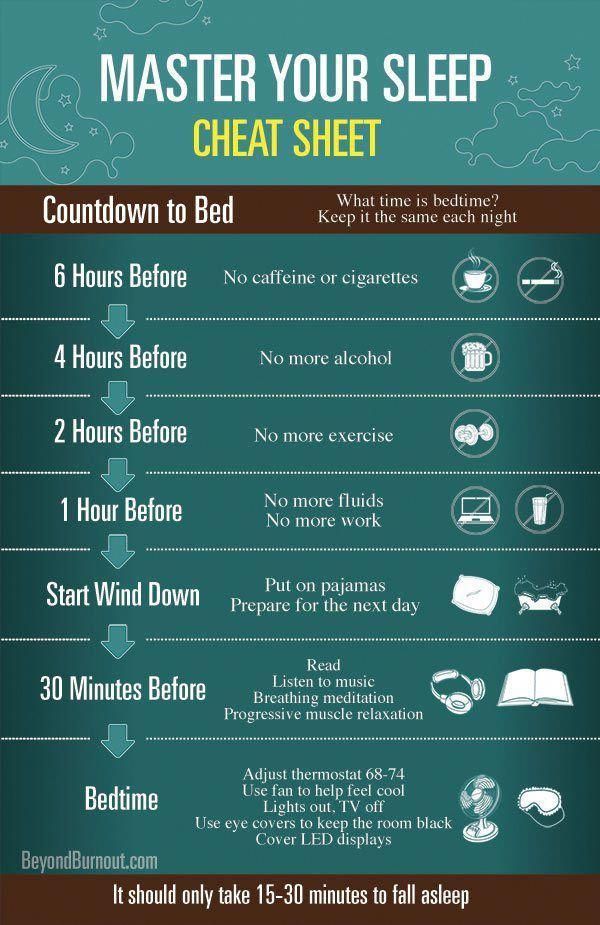 This can help you determine what time of day you are most productive and adjust your daily routine accordingly.
This can help you determine what time of day you are most productive and adjust your daily routine accordingly.
Statistics Full screen
Components of the daily routine
We have already said that it is impossible to offer a universal daily routine that would suit everyone. When drawing up a schedule, many personal factors are taken into account, but there are also points that everyone must follow. These are necessary conditions for everyone who wants to lead a healthy lifestyle and be healthy.
1
Sleep
The realities of the modern world are such that many people either do not get enough sleep or regularly sleep more than the body needs. In both cases, this negatively affects the physical condition of a person and his activities. A clear daily routine and the right time for sleep allow all human life support systems to recover and relax, and also help to avoid sleep and nervous system disorders [MedicalNewsToday, 2019, Ho L.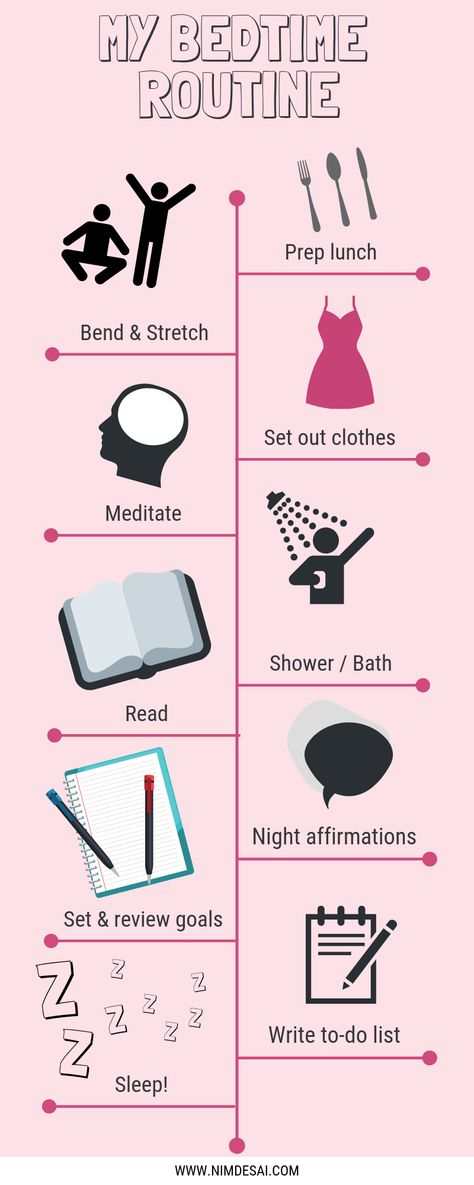 , 2020].
, 2020].
So, the ideal time for sleep is the period from 11 pm to 7 am [Healthline, 2019]. On average, an adult should sleep about 7-8 hours a day, although there are many cases when people slept much less (3-6 hours a day), but they felt great and did their job efficiently. Famous successful sleep-deprived people include Julius Caesar, Leonardo da Vinci, Benjamin Franklin, Napoleon Bonaparte, Thomas Jefferson, Salvador Dali, Nikola Tesla, Thomas Edison, Winston Churchill and Margaret Thatcher.
However, one should not resort to extreme cases and neglect healthy sleep altogether. In some clinical experiments, isolated cases were observed when people did not sleep for more than 250 hours in a row. By the end of this period of time, doctors noted in patients a disorder of attention, the inability to focus on an object for more than 20 seconds, and psychomotor impairment. Such experiments did not bring much harm to health, but they knocked the human body out of its usual state for several days.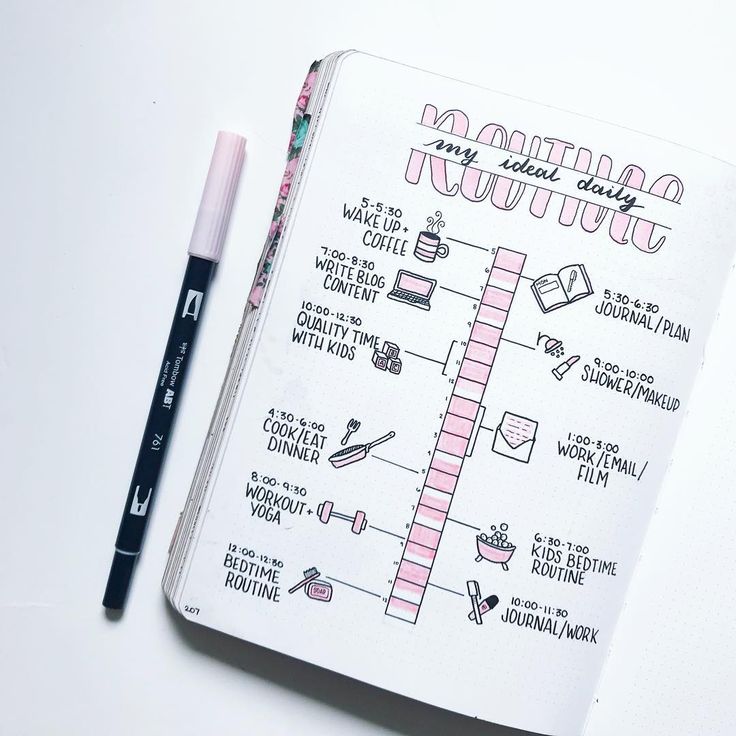
For many people who want to straighten their schedule and learn how to go to bed early, the question of "how to fall asleep" at the scheduled time is relevant. Here are some recommendations:
- Instead of watching detective series on TV or surfing the Internet, it is better to read a book before going to bed.
- A few hours before bedtime, it is worth doing physical exercises, running, just walking.
- Do not eat heavy meals at night.
- Before going to bed it is useful to ventilate the room.
- In this way, make up your daily routine so that when you go to bed, the body feels tired.
Even if you can't fall asleep for a long time in the evening, you still need to get up at the scheduled time in the morning. You won't get enough sleep one day, but the next night you will be able to fall asleep earlier.
2
Meals
Everyone knows the phrase “to live, you need to eat”, but you need to eat right.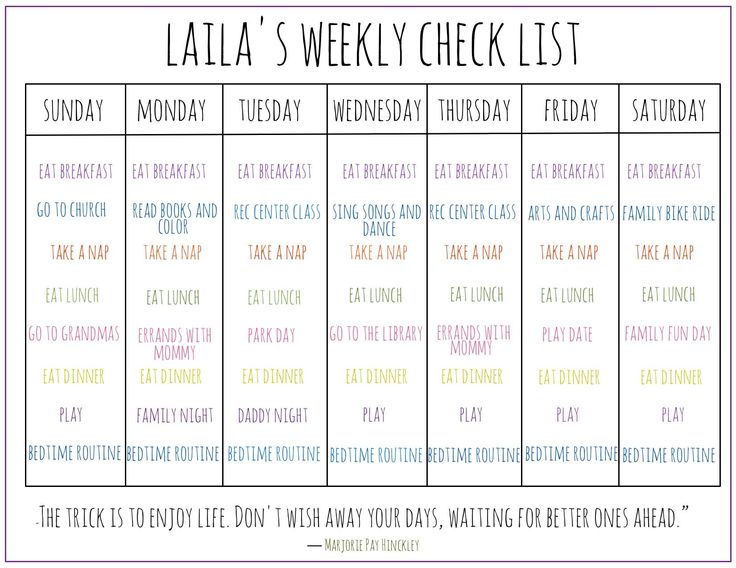 We will talk in detail about proper nutrition and everything connected with it in the next lesson, here we will note only a few important nuances. Food is fuel for the body. With it, we get not only energy for the day, which is spent on mental and physical activity, but also provide the body with the necessary vitamins and minerals. That is why it is important to eat regularly and fully, the need for a diet must be agreed with a specialist who will help you create the optimal menu, taking into account the physiological needs of the body.
We will talk in detail about proper nutrition and everything connected with it in the next lesson, here we will note only a few important nuances. Food is fuel for the body. With it, we get not only energy for the day, which is spent on mental and physical activity, but also provide the body with the necessary vitamins and minerals. That is why it is important to eat regularly and fully, the need for a diet must be agreed with a specialist who will help you create the optimal menu, taking into account the physiological needs of the body.
3
Rest
Restoration of strength and working capacity of the body occurs not only during sleep, but also during the period of activity of the body. During work, a person also needs rest, since it is impossible to constantly maintain a high level of working capacity. Don't waste your lunch break doing work, get some rest, and soon you'll be able to get back to work with renewed vigor and work more productively and efficiently.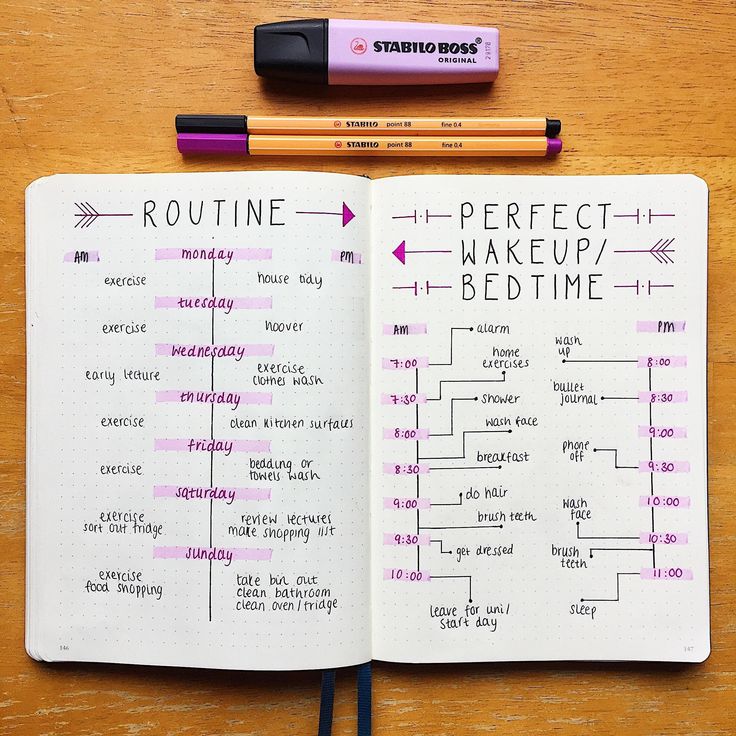
After work, it is also important to rest. If you work at the computer all day, after returning home, spend the evening without it. Spend time reading, communicating with family and friends, self-education.
4
Work
Each of us has to work: schoolchildren go to classes and do homework, students attend lectures and seminars, prepare for exams, adults build a career and earn a living. The ability to plan your working time is an important part of the daily routine as a whole. Methods of self-management, time management, as well as recommendations for improving personal efficiency at work and outside of it, you can find in the articles in a special section of our blog “Time-management”.
5
Physical activity
This is the recommended part of the day for everyone who cares about their health. First of all, you need to think about training for those whose work limits the motor activity of the body throughout the day. Even if you do not have the opportunity to sign up for a gym or go to the pool, you can work out at home or on playgrounds in yards and schools.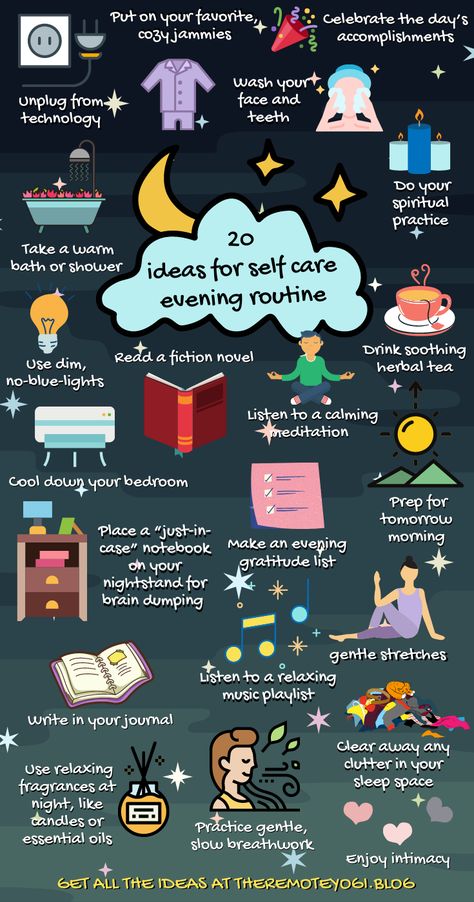 If there are medical contraindications, instead of playing sports, you can practice light walks in the fresh air after eating. Read more about the role of physical activity in a healthy lifestyle in this lesson.
If there are medical contraindications, instead of playing sports, you can practice light walks in the fresh air after eating. Read more about the role of physical activity in a healthy lifestyle in this lesson.
6
Mental balance
As they say, “a healthy mind in a healthy body”, but the opposite is also true. If a person is calm and satisfied with life, enjoys work, it means that it is easier for him to observe the daily routine. To understand ourselves, we made a special course "Self-Knowledge", which will allow you to understand yourself, to understand your strengths and weaknesses. Find out more.
How to plan your daily routine0072, posted by him in his "Autobiography":
(the image is based on a fragment of the book by M. Curry)
Below are some recommendations for compiling your daily routine.
How to create a daily routine for an adult
When compiling a daily routine, focus on the following points:
| 1 | Try not only to think over the schedule, but also write it down.  Use special programs, a diary, or simply write it down on a piece of paper. A written daily routine will not only remind you of business, but also serve as a silent reproach if any of the planned is not fulfilled. Use special programs, a diary, or simply write it down on a piece of paper. A written daily routine will not only remind you of business, but also serve as a silent reproach if any of the planned is not fulfilled. |
| 2 | It is important that at first only what you really do during the day is included in the regimen. Simply put, it’s worth adding items to the schedule that you will definitely complete, for example, get up at 7 to get ready, have breakfast and, given the road, be at work by 9. If you only want to go to the gym after work, but have never done it before, you should not include such an item in your daily plan. Later, when the idea can be realized, the regime can be adjusted. Remember that you can train yourself to follow the routine, and, therefore, self-discipline, only by completing the real items of the schedule. |
| 3 | In different components of your regime (primarily for work), rank tasks.  Put the difficult tasks at the beginning and do them in the same order. Put the difficult tasks at the beginning and do them in the same order. |
| 4 | Try to take into account the physiological needs of your body, which were mentioned above. Observe personal hygiene, do not stay up late, eat at the same time. |
| 5 | It is also important that a few days after the decision to start compiling the regimen, you begin to mark the time intervals spent on certain actions. Print the average of how long it takes you to have breakfast, get to work, answer emails, communicate with colleagues, and so on. Based on the data obtained, you need to draw up the first regimen of the day. The use of the “first” characteristic is not accidental - in the future, most likely, you will repeatedly adjust your regimen, and it is important to learn during this process to rely on specific time frames, and not on subjective feelings of the time spent. |
Obviously, the daily routine is compiled in accordance with employment at work, which is more or less defined.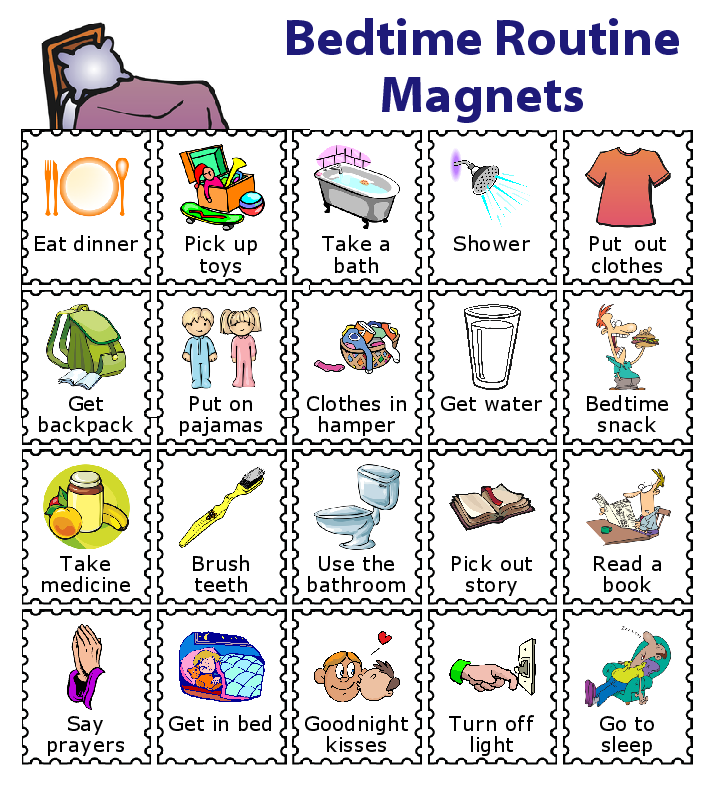 Nevertheless, it is important to plan not only working time, but also rest, time for household chores and other things. This is sometimes difficult to do, but over time you will learn.
Nevertheless, it is important to plan not only working time, but also rest, time for household chores and other things. This is sometimes difficult to do, but over time you will learn.
How to create a daily routine for a schoolchild (teenager)
Here, too, there are several highlights :
| 1 | The first thing to start with is the “field stage”. Some time needs to be spent on observation: how long does it take to get to school, to the section, prepare homework, etc. If the student makes up his own regimen, the data obtained must be agreed with the parents, who will help take into account the characteristics of age and allocate sufficient time for rest . |
| 2 | School education is built taking into account pedagogical, psychological methods, nuances of age. The number of lessons, electives are given in such a volume so as not to overload the student. 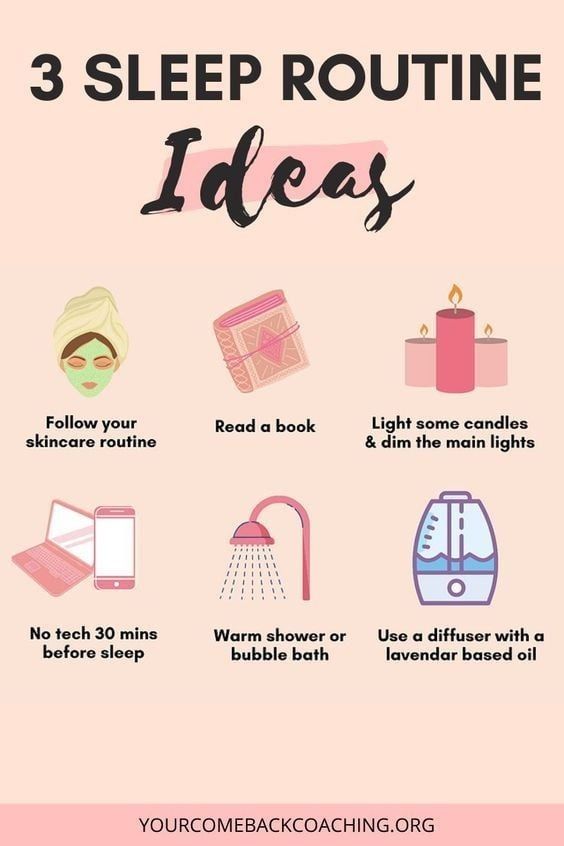 But rest time must be planned separately. But rest time must be planned separately.
|
| 3 | It is unacceptable to spend most of your free time watching TV or playing computer games. This problem is solved by enrolling in sections and circles, fulfilling household chores assigned by parents, and other more useful things. |
| 4 | It is important to motivate the child to fulfill the daily routine at first. It all depends on the parents. |
| 5 | For elementary school students, it is imperative to set aside time for daytime sleep. High school students can go to bed a little later, as well as independently make adjustments to their schedule in accordance with employment. For the preparation of written homework, the interval between 16.00 and 18.00 is best suited. It is better to read books and textbooks in the evening. |
Below is one of the pediatrician-approved hourly routines Grade 3:
- 7:00.
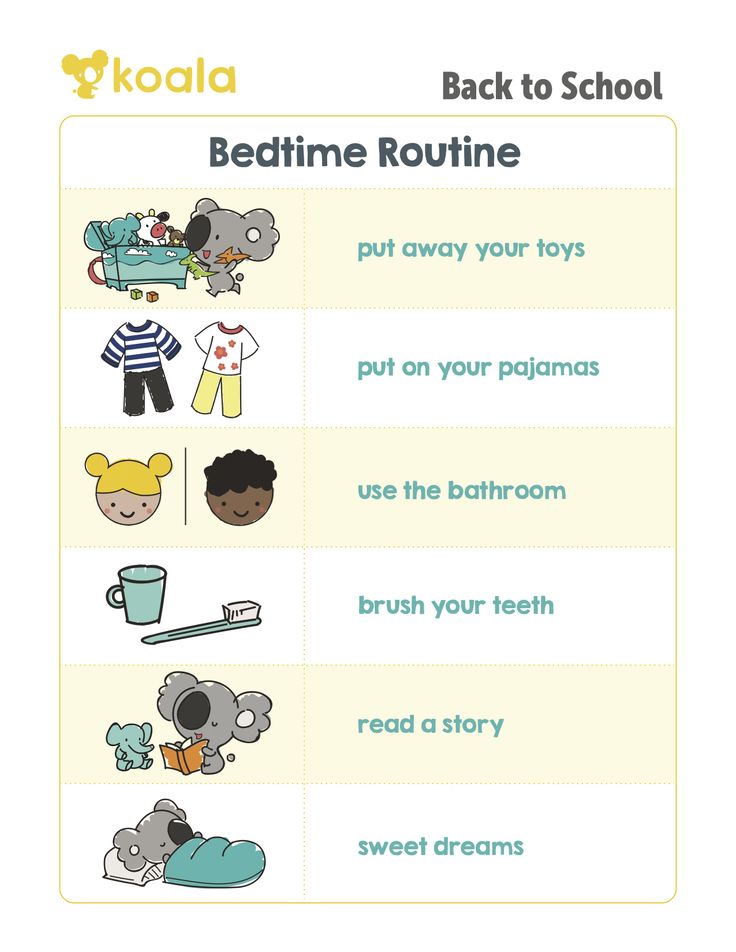 Lift.
Lift. - 7:00-7:30. Charging, washing.
- 7:30-7:45. Breakfast.
- 8:30-13:05. Classes at school.
- 13:30-14:00. Lunch.
- 14:00-15:45. Outdoor games, walks, outdoor activities.
- 15:45-16:00. Afternoon snack.
- 16:00-18:00. Self-training, homework.
- 18:00-19:00. Free time, rest.
- 19:00-19:30. Dinner.
- 19:30-20:00. Free time, housework.
- 20:00-20:30. Evening walk.
- 20:30-21:00. Getting ready for bed.
- 21:00. Dream.
And finally, one more option.
How to create a daily routine for a student
The following recommendations will help to create a daily routine for a student :
| 1 | Start by collecting and analyzing information about the time spent. 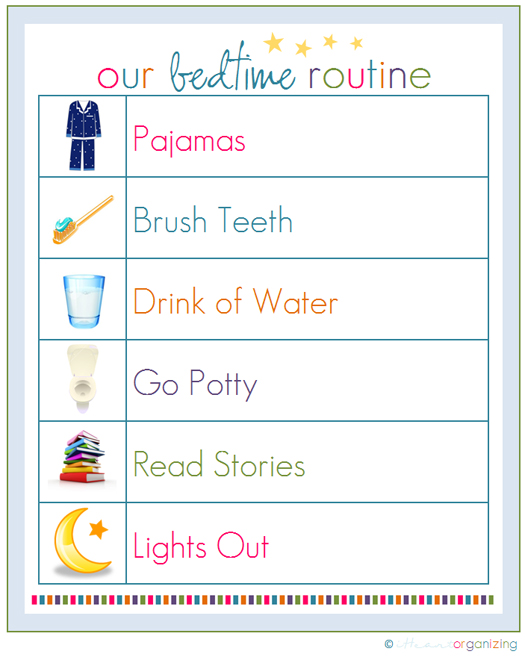 If the daily routine was drawn up while studying at school, then nothing will change dramatically in the daily routine of a full-time student. If the daily routine was drawn up while studying at school, then nothing will change dramatically in the daily routine of a full-time student. |
| 2 | Compared to schoolchildren, students often increase the amount of information received and the time for self-training. It is worth considering at the same time that mental activity should alternate with physical and outdoor activities - to maintain health, these items should not be excluded from the schedule. |
| 3 | The activity of a student is associated with a constant tension of mental forces, and in order to use them fruitfully, one must remember not only the alternation of work and rest, but also some other features. You need to enter the work gradually, first repeating already known material and only then starting to learn new things. |
| 4 | The mode of the day for the session must be compiled separately. 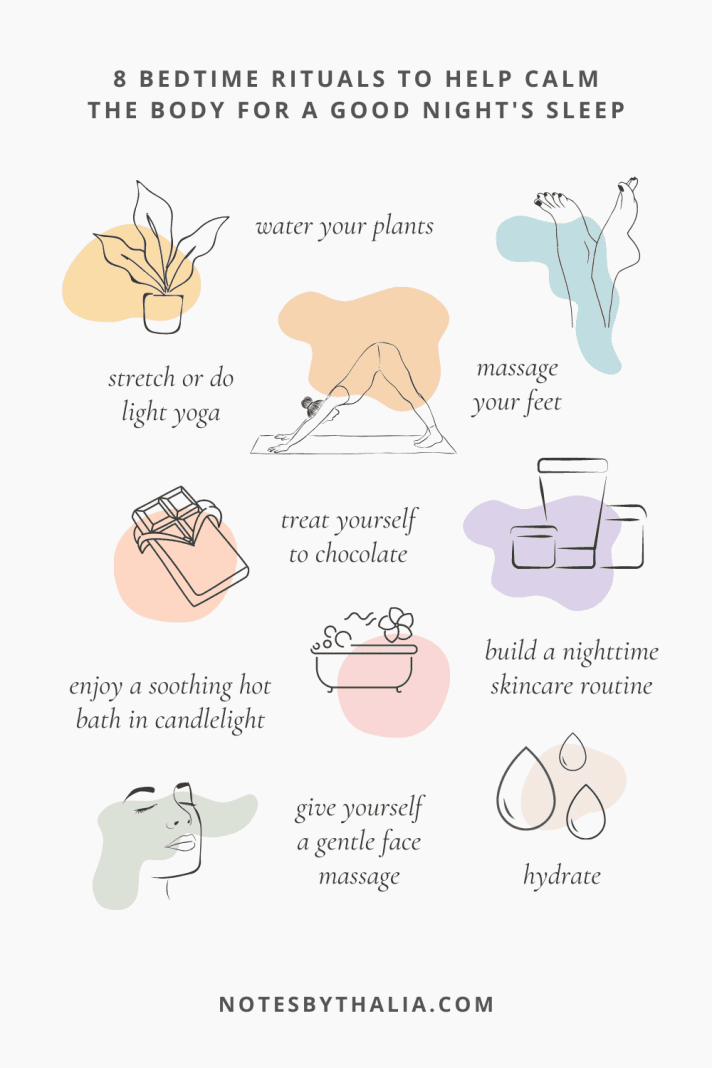 Preparation should begin at the same time intervals as couples take place throughout the semester - the brain is already used to being active at such a time. Particular attention should be paid to food and rest. Preparation should begin at the same time intervals as couples take place throughout the semester - the brain is already used to being active at such a time. Particular attention should be paid to food and rest. |
| 5 | A properly designed and thought out daily routine, no matter how difficult it may be to stick to at first, will soon lead to the development of a dynamic stereotype, which will make following the schedule easier. |
Polls and observations show that those students who make up the daily routine have up to 5 hours of free time for personal interests. Following the routine will allow you to maintain a healthy balance in your activities: not to spend all the time on “cramming”, on the one hand, but also not to walk, constantly sleeping off in pairs, on the other.
Test your knowledge
If you would like to test your knowledge on the topic of this lesson, you can take a short test consisting of several questions.